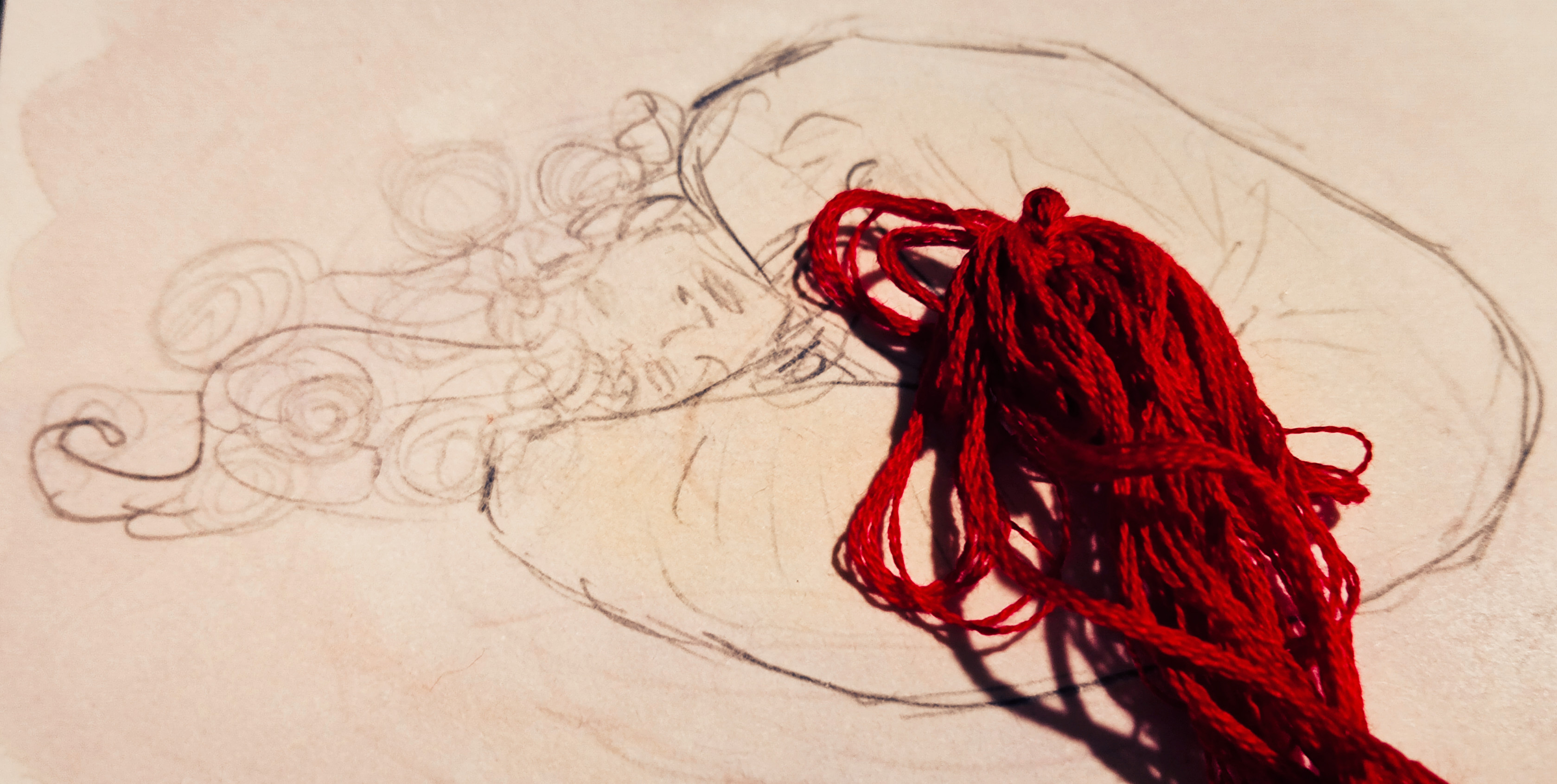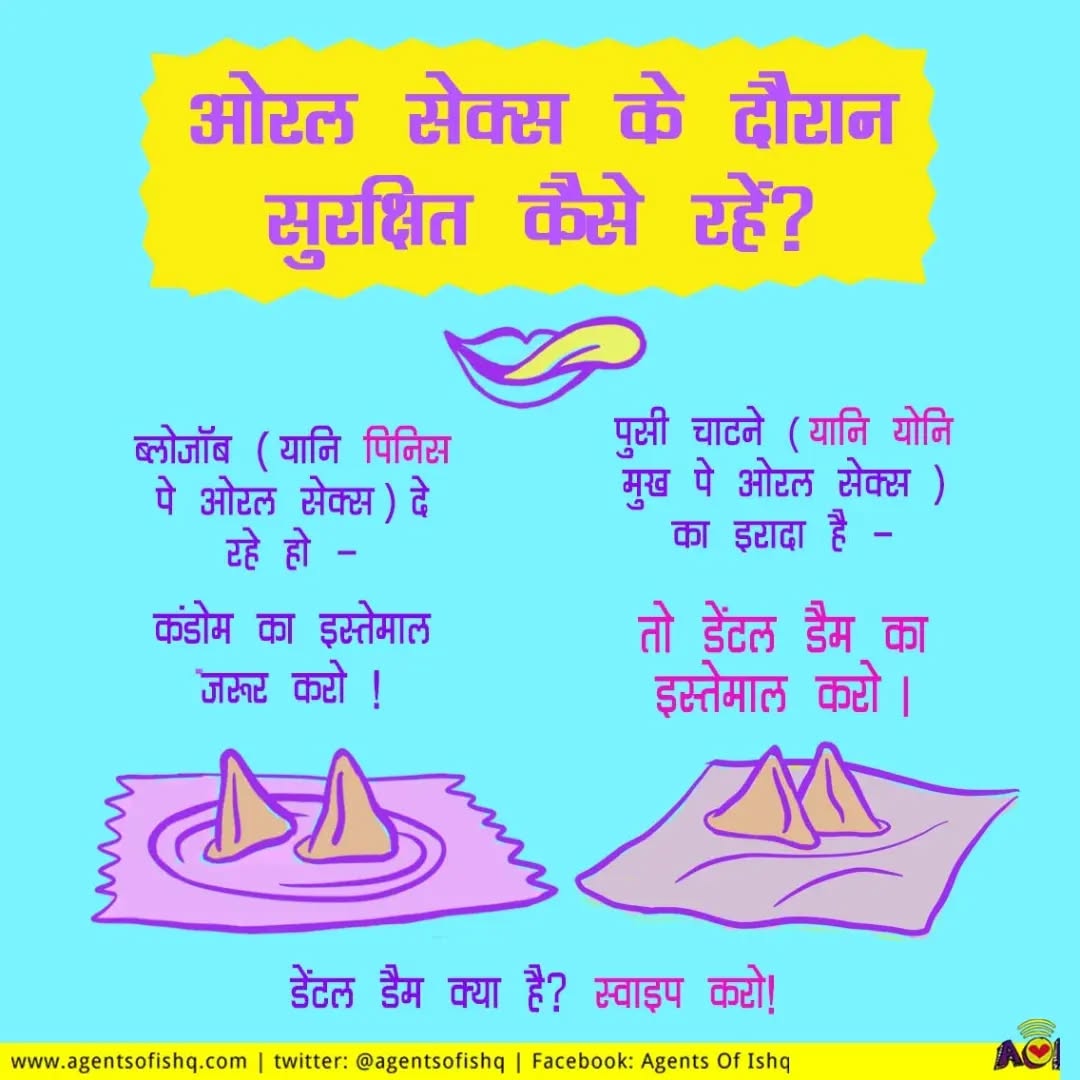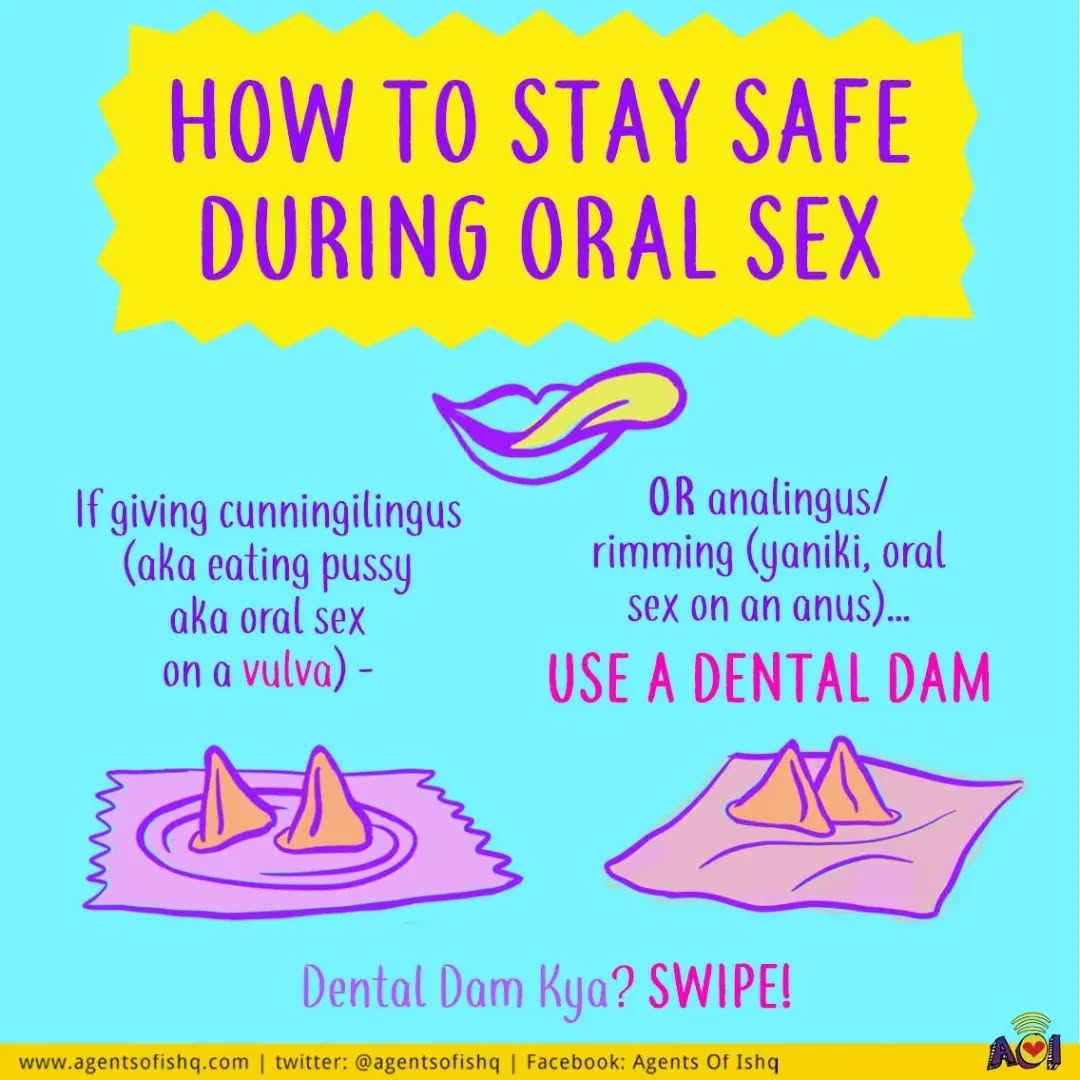When do you think Valentine’s Day was celebrated for the first time? When did it become a thing? From cutesy cards and XXL teddy bears to moral policing, from reality love shows to matru pitru divas, from Black Day to Rose Day, V-day has had a colourful career in India! Love is never new, nor the meetings of lovers by a nadi-kinara once, while tota-maina cooed, as they meet today in a CCD under a pink paper heart bunting. Pyar ke dushman also have a pushtaini legacy, objecting to relationships of choice, and relationships across divides. V-day was introduced into this already churning mix and jaise pyaar mein hota hi hai - V-day changed India and India changed V-day.So, what could a timeline of Valentine’s Day’s tell us about the republic of love?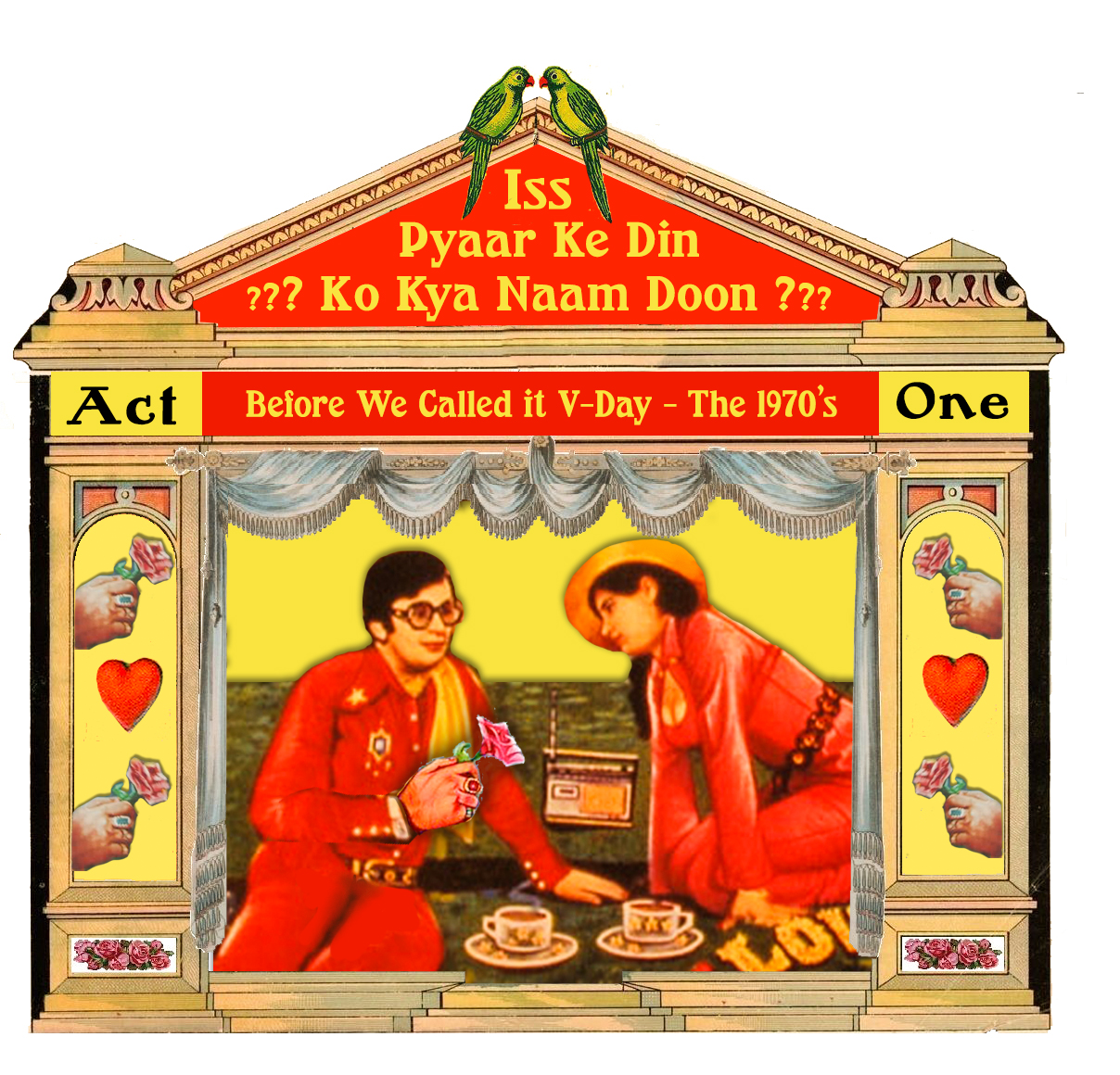 Wasn’t it Ghalib who said, yeh na thi hamari kismat ki valentine’s card hota, but hey, I got some sher-o-shayari for you? Matlab, did V-day exist in other forms? Did it start a long time ago, bole toh circa B.I. (Before Internet).It is the 1970s...Polka dots, blouses mein Koli knots, flower power, free love, disco are all sending vibes from across the seas; more young people, especially women, are going to college, affordable cafes are slowly emerging in cities. Young love and youth lifestyle - pop music, cassettes, dancing, fashion - are becoming a thing. 1973 - “I’m Bobby. Mujhse dosti karoge?” A new movie, about solah baras ke (remember, 16 was the age of sexual consent then, nudge nudge) becomes a craze. Rishi Kapoor and Dimple Kapadia starrer Bobby is a super duper hit, and creates a language of young, stylish, passionate, hum tum ek kamre mein band ho love. Teens everywhere begin to emulate the Raj and Bobby date and everything from hair clips to saris acquires the brand name Bobby. What is it but an ancestor of Valentine’s Day, even if it isn’t called by this name right yet?
Wasn’t it Ghalib who said, yeh na thi hamari kismat ki valentine’s card hota, but hey, I got some sher-o-shayari for you? Matlab, did V-day exist in other forms? Did it start a long time ago, bole toh circa B.I. (Before Internet).It is the 1970s...Polka dots, blouses mein Koli knots, flower power, free love, disco are all sending vibes from across the seas; more young people, especially women, are going to college, affordable cafes are slowly emerging in cities. Young love and youth lifestyle - pop music, cassettes, dancing, fashion - are becoming a thing. 1973 - “I’m Bobby. Mujhse dosti karoge?” A new movie, about solah baras ke (remember, 16 was the age of sexual consent then, nudge nudge) becomes a craze. Rishi Kapoor and Dimple Kapadia starrer Bobby is a super duper hit, and creates a language of young, stylish, passionate, hum tum ek kamre mein band ho love. Teens everywhere begin to emulate the Raj and Bobby date and everything from hair clips to saris acquires the brand name Bobby. What is it but an ancestor of Valentine’s Day, even if it isn’t called by this name right yet? 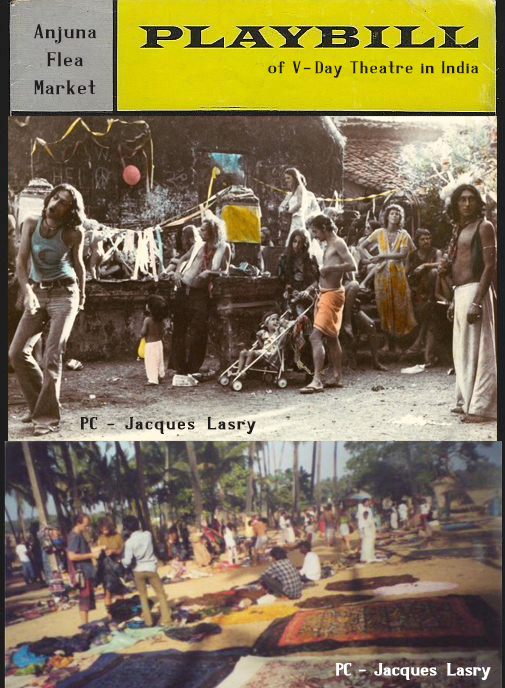 1975 - Anjuna Flea Market is inaugurated on V-day.A bunch of American hippies drive and hitchhike their way to India, ending up in Goa (at least their Goa trip toh worked out!). Before we can say Protima Bedi, the leader of the group - Yertgard “Eight Finger Eddie” Mazmanian (yes, the beer is named after him) - sets up the first flea market in Anjuna on Valentine’s Day 1975, making flea and free love the newest hippie-happy thing in India. And maybe, just maybe, this puts the V-day idea out across the Hindustani universe. 1979 - A shop called Archies.
1975 - Anjuna Flea Market is inaugurated on V-day.A bunch of American hippies drive and hitchhike their way to India, ending up in Goa (at least their Goa trip toh worked out!). Before we can say Protima Bedi, the leader of the group - Yertgard “Eight Finger Eddie” Mazmanian (yes, the beer is named after him) - sets up the first flea market in Anjuna on Valentine’s Day 1975, making flea and free love the newest hippie-happy thing in India. And maybe, just maybe, this puts the V-day idea out across the Hindustani universe. 1979 - A shop called Archies.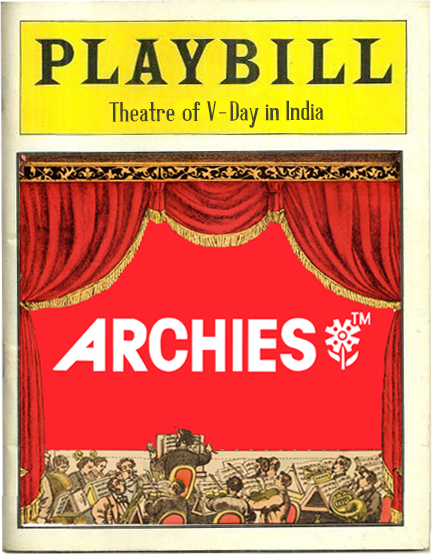 Anil Moolchandani, son of a saree shop owner, is given two pop-culture posters by a customer who returns from the US. He decides to stick these posters on the door to their store in Kamla Nagar. The posters signal ‘imported’ cool, and catch the eye of several customers and passers-by (perhaps students of the near-by Delhi University), who begin to ask how they can get some. Anil Moolchandani seizes the business opportunity and starts to print and sell posters of movie stills and romance, in his saree shop, and by mail order. One thing leads to another, and ultimately, Archies Greetings and Gifts, is born in 1979, its name evoking Archies comics with their American youth culture of dates, and hanging out over ice-cream sundaes. Nirulas, which started two years earlier, in 1977, becomes the aspirational spot for this Sunday-ke-Sundae type of date.
Anil Moolchandani, son of a saree shop owner, is given two pop-culture posters by a customer who returns from the US. He decides to stick these posters on the door to their store in Kamla Nagar. The posters signal ‘imported’ cool, and catch the eye of several customers and passers-by (perhaps students of the near-by Delhi University), who begin to ask how they can get some. Anil Moolchandani seizes the business opportunity and starts to print and sell posters of movie stills and romance, in his saree shop, and by mail order. One thing leads to another, and ultimately, Archies Greetings and Gifts, is born in 1979, its name evoking Archies comics with their American youth culture of dates, and hanging out over ice-cream sundaes. Nirulas, which started two years earlier, in 1977, becomes the aspirational spot for this Sunday-ke-Sundae type of date. 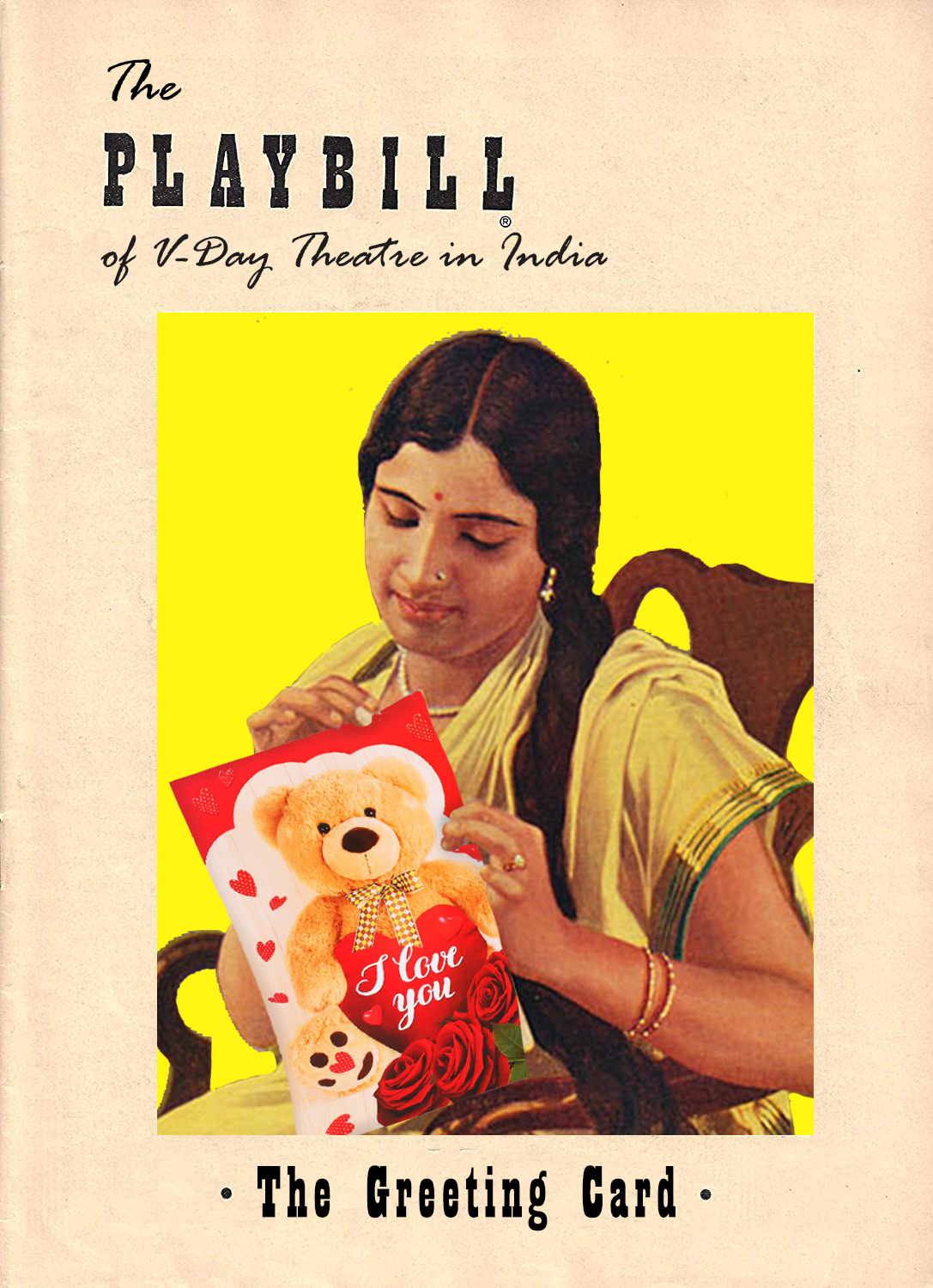 1980 - The birth of the greeting cardArchies releases its first line of greeting cards (P-series/Poster series) simply by shrinking posters to the size of handheld, giftable cards. Cards expressing love and affection, through quirky Disney characters - Mickey Mouse, Donald Duck, etc., - set the market and emotions aflame. Angrezi mein kehte hain ki “I love you” - and a language for expressing vibes, woh bhi in English, in a more playful way, enters Indian pop culture.Waise, Archies is not the only store of this kind in Delhi, at this time. Giggles, in Connaught Circus, was actually a gift-hub of this kind even before Archies! Late 1970s - early 1980’s - Rose DayPrecise date unknown, but the earliest oral memory we found, was 1967, in Elphinstone college. In the colleges of Bombay (or so the legend goes), the smell of roses wafts through the air…something called Rose Day begins to be celebrated, where students give each other roses in a dil-se expression of affection.Of course while on the surface this denotes a changing, more relaxed attitude to romance, there is always the small print of gender: “The young woman who got the most number of roses was declared Rose Queen. There was no Rose King because it was pretty much unheard of that girls/women would send roses to boys/men, and no LGBTQ of course.” - Sonora Jha, Age 52Some say it began as a Rotary club fundraiser--buy a rose, and the proceeds go to XYZ campaign. Others say it began as a celebration of love and friendship. Either way, Rose Day becomes a tradition over the years, and is later also integrated into Valentine’s ‘week’.
1980 - The birth of the greeting cardArchies releases its first line of greeting cards (P-series/Poster series) simply by shrinking posters to the size of handheld, giftable cards. Cards expressing love and affection, through quirky Disney characters - Mickey Mouse, Donald Duck, etc., - set the market and emotions aflame. Angrezi mein kehte hain ki “I love you” - and a language for expressing vibes, woh bhi in English, in a more playful way, enters Indian pop culture.Waise, Archies is not the only store of this kind in Delhi, at this time. Giggles, in Connaught Circus, was actually a gift-hub of this kind even before Archies! Late 1970s - early 1980’s - Rose DayPrecise date unknown, but the earliest oral memory we found, was 1967, in Elphinstone college. In the colleges of Bombay (or so the legend goes), the smell of roses wafts through the air…something called Rose Day begins to be celebrated, where students give each other roses in a dil-se expression of affection.Of course while on the surface this denotes a changing, more relaxed attitude to romance, there is always the small print of gender: “The young woman who got the most number of roses was declared Rose Queen. There was no Rose King because it was pretty much unheard of that girls/women would send roses to boys/men, and no LGBTQ of course.” - Sonora Jha, Age 52Some say it began as a Rotary club fundraiser--buy a rose, and the proceeds go to XYZ campaign. Others say it began as a celebration of love and friendship. Either way, Rose Day becomes a tradition over the years, and is later also integrated into Valentine’s ‘week’. 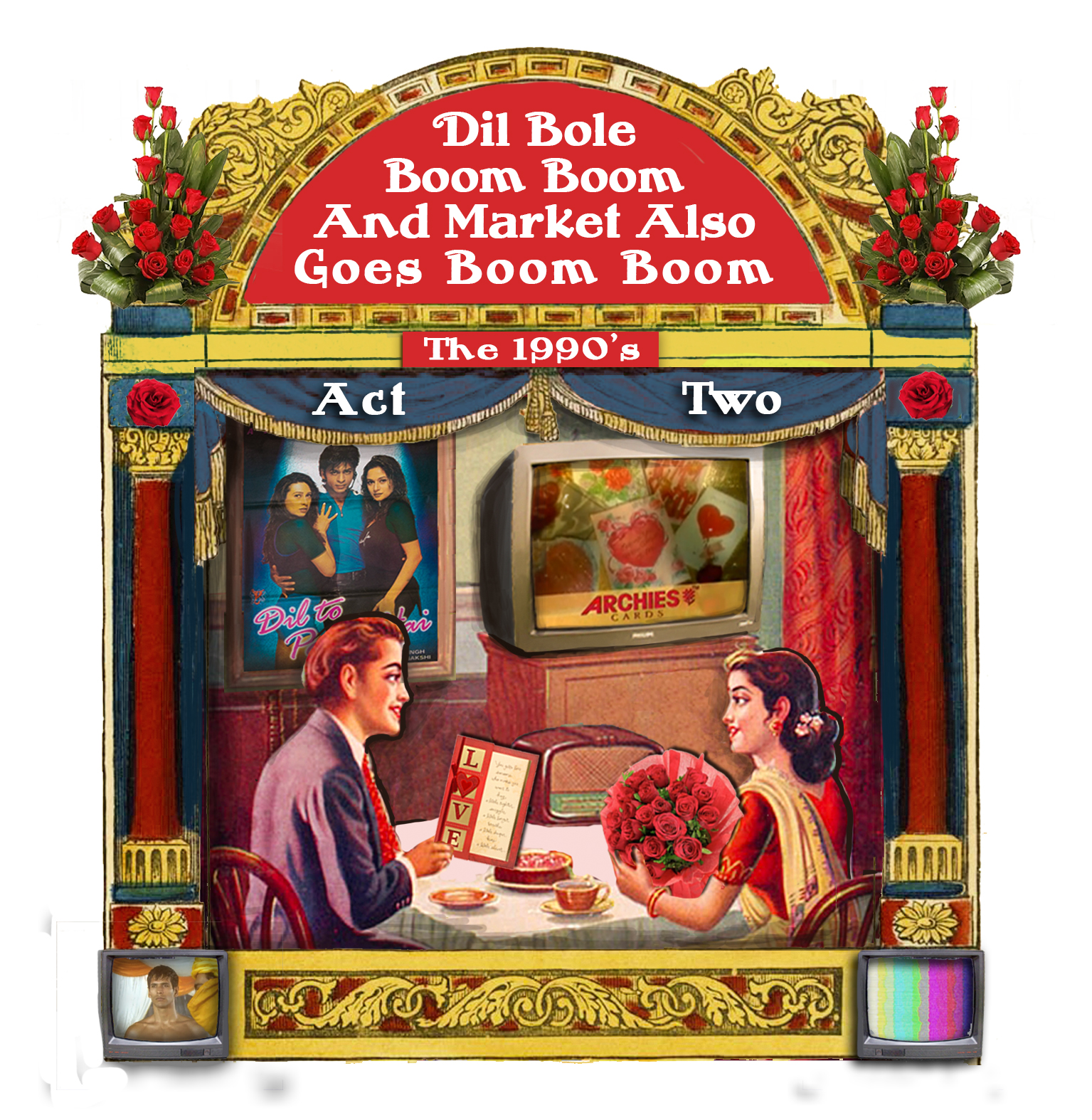 Winter nahi, lekin something is coming. Liberalisation. ‘Offers’ no longer mean shaadi ya job ke offers’ as it brings with it advertising, innovative marketing , Music TV, more brands, and more avenues for V-Day to make its way into the Indian festival market - and help make the market into a festival of sorts. It rides high and far on Hinglish- a language constantly remixing the desi and videshi into something newer and more widely relatable. 1985 - From Valentine’s Cards to Valentine’s Ads.Archies, building on the success of their love cards, runs their first Valentine’s Day campaign to market their new product - Valentine’s cards. This is the first year that India sees an advertisement of Valentine’s Day in the major newspapers. 1991 - To Market To Market, to say Hello LiberalisationEconomic liberalisation comes to India bringing a surge of globalised content. Private TV channels, international satellite broadcast, youth magazines, decentralised radio with international music coverage, present a hearty welcome to contemporary culture.
Winter nahi, lekin something is coming. Liberalisation. ‘Offers’ no longer mean shaadi ya job ke offers’ as it brings with it advertising, innovative marketing , Music TV, more brands, and more avenues for V-Day to make its way into the Indian festival market - and help make the market into a festival of sorts. It rides high and far on Hinglish- a language constantly remixing the desi and videshi into something newer and more widely relatable. 1985 - From Valentine’s Cards to Valentine’s Ads.Archies, building on the success of their love cards, runs their first Valentine’s Day campaign to market their new product - Valentine’s cards. This is the first year that India sees an advertisement of Valentine’s Day in the major newspapers. 1991 - To Market To Market, to say Hello LiberalisationEconomic liberalisation comes to India bringing a surge of globalised content. Private TV channels, international satellite broadcast, youth magazines, decentralised radio with international music coverage, present a hearty welcome to contemporary culture. 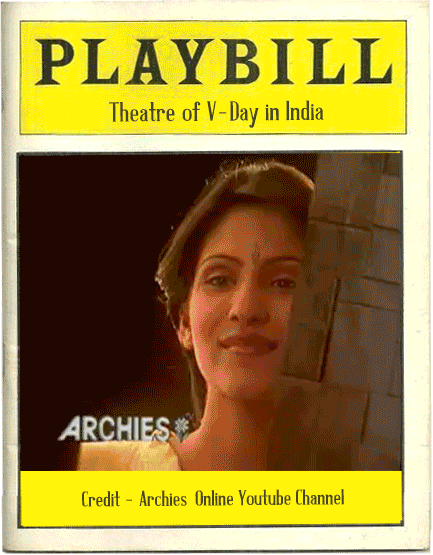 February 1991 -Love on TVTo expand the abhi fast-spreading Valentine’s market, Archies puts out its first advertisement on television in early February (Star, being the only available channel at this point) for Valentine’s Day. Suddenly Chitrahaar and Sunday movies aren't the only whiff of romance on the TV screen. 1992 - MTV on V-DayMTV arrives in India via Star TV. They host their pehla Valentine’s Day event - a love letter contest. After all, kabutar se bheje hue pyaar ke chitthi are definitely a shuddh desi specialty! 1994 - Love is floweringFerns N Petals is started, adding to the growing florist market in the 90s. They set up their first website in 2002, allowing for pan-India deliveries round the clock. Aakhir, we are all phoolz for love.
February 1991 -Love on TVTo expand the abhi fast-spreading Valentine’s market, Archies puts out its first advertisement on television in early February (Star, being the only available channel at this point) for Valentine’s Day. Suddenly Chitrahaar and Sunday movies aren't the only whiff of romance on the TV screen. 1992 - MTV on V-DayMTV arrives in India via Star TV. They host their pehla Valentine’s Day event - a love letter contest. After all, kabutar se bheje hue pyaar ke chitthi are definitely a shuddh desi specialty! 1994 - Love is floweringFerns N Petals is started, adding to the growing florist market in the 90s. They set up their first website in 2002, allowing for pan-India deliveries round the clock. Aakhir, we are all phoolz for love. 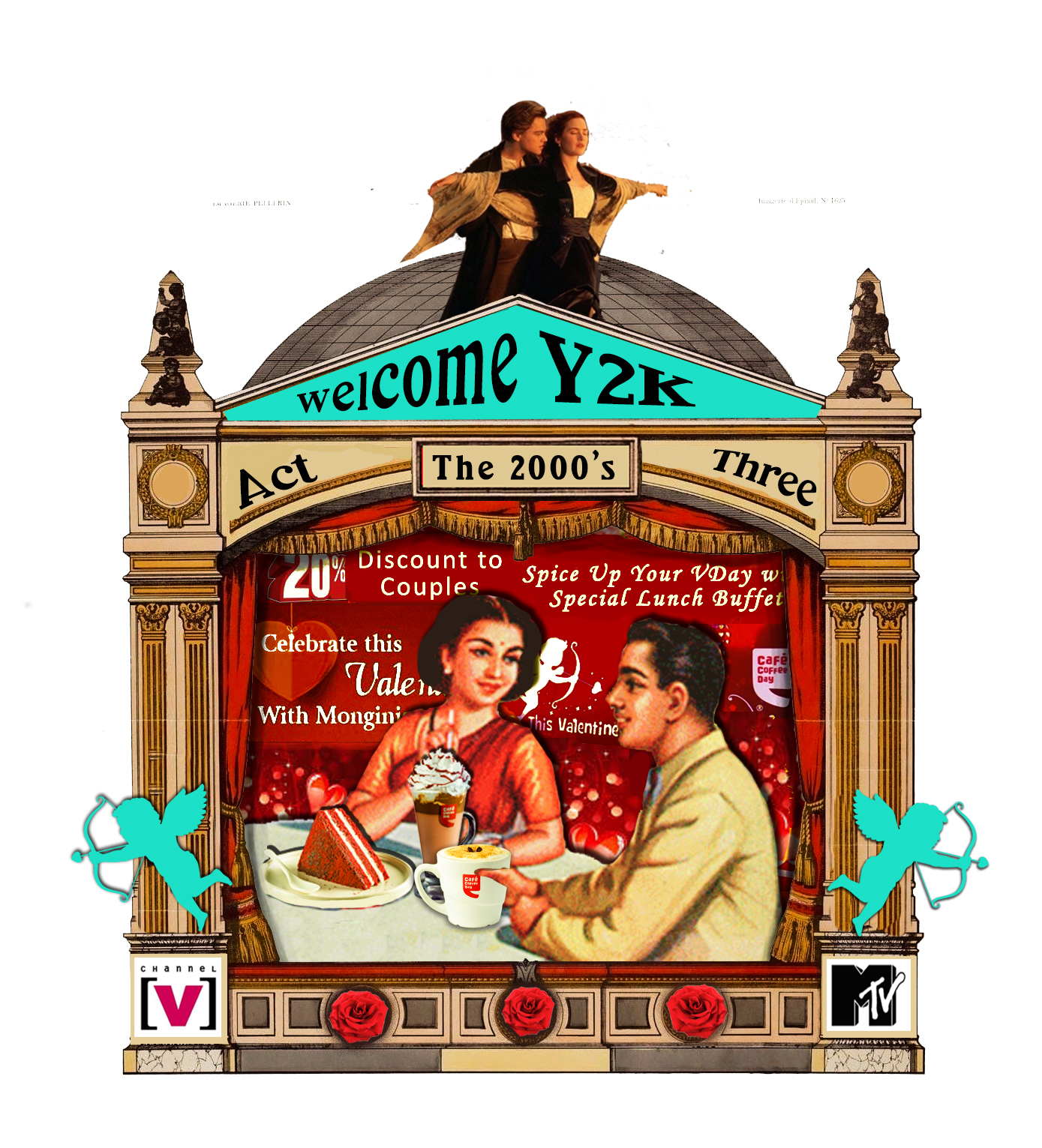 21st century aayi. The internet does not collapse as portended, but accelerates everything already in motion over a decade of the new economy and culture. 1997-2000 - The Market BoomValentine’s Day celebrations explode in most cities, especially Bombay, in the big Y2K. Multiple restaurants (Copper Chimney, CCD, Barista, Mirch Masala, Monginis... being some of the leading brands) announce Valentine’s Day crowd-gatherers.
21st century aayi. The internet does not collapse as portended, but accelerates everything already in motion over a decade of the new economy and culture. 1997-2000 - The Market BoomValentine’s Day celebrations explode in most cities, especially Bombay, in the big Y2K. Multiple restaurants (Copper Chimney, CCD, Barista, Mirch Masala, Monginis... being some of the leading brands) announce Valentine’s Day crowd-gatherers. 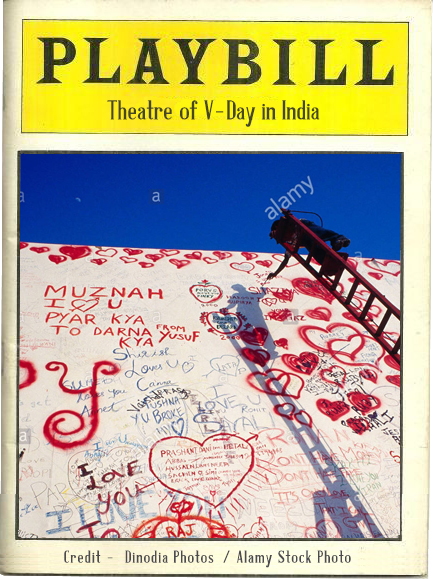 2000 - Bombay Times, the home of all things marketing and lifestyle, runs a headline on 14th Feb - “Remember, Cupid rhymes with Stupid,” but that definitely does not stop the cupidity.A giant V-day card is installed on Chowpatti beach, free for couples to sign, write letters on, and take pictures with. “A TV channel is taking a giant float of the epic ship, the Titanic, to different city colleges. Young sweethearts can pose on it like film-stars Kate Winslet and Leonardo DiCaprio, who played Rose and Jack in the Oscar-winning film,” writes BBC. Channel V starts Channel [V] Crush - a show that invites lovers to send in their stories, and either celebrates their relationship or plays Cupid to get them together. The show stays on air from 2000-2005.
2000 - Bombay Times, the home of all things marketing and lifestyle, runs a headline on 14th Feb - “Remember, Cupid rhymes with Stupid,” but that definitely does not stop the cupidity.A giant V-day card is installed on Chowpatti beach, free for couples to sign, write letters on, and take pictures with. “A TV channel is taking a giant float of the epic ship, the Titanic, to different city colleges. Young sweethearts can pose on it like film-stars Kate Winslet and Leonardo DiCaprio, who played Rose and Jack in the Oscar-winning film,” writes BBC. Channel V starts Channel [V] Crush - a show that invites lovers to send in their stories, and either celebrates their relationship or plays Cupid to get them together. The show stays on air from 2000-2005. 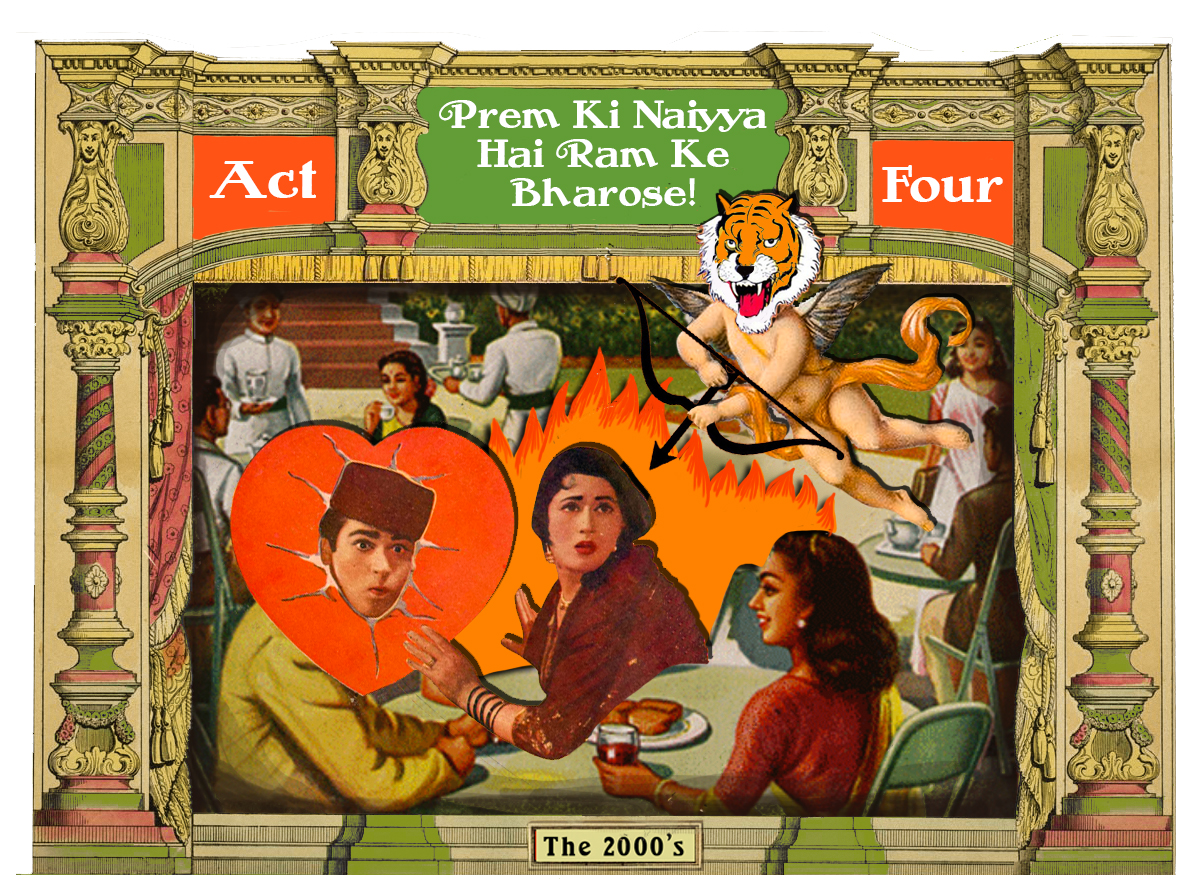 Young desis and not-so-young ones, have made Valentine’s day their apna, lekin not everyone is all “I’m lovin’ it”. Many political parties are crying Maa da laadla and ladli bigad gaye, a.k.a., “western influence is ruining Indian culture”. As always, love creates anxieties about caste, religion, control and change and Valentine’s Day becomes a way to express this idea of ‘tradition’ and try to re-establish social control..
Young desis and not-so-young ones, have made Valentine’s day their apna, lekin not everyone is all “I’m lovin’ it”. Many political parties are crying Maa da laadla and ladli bigad gaye, a.k.a., “western influence is ruining Indian culture”. As always, love creates anxieties about caste, religion, control and change and Valentine’s Day becomes a way to express this idea of ‘tradition’ and try to re-establish social control.. 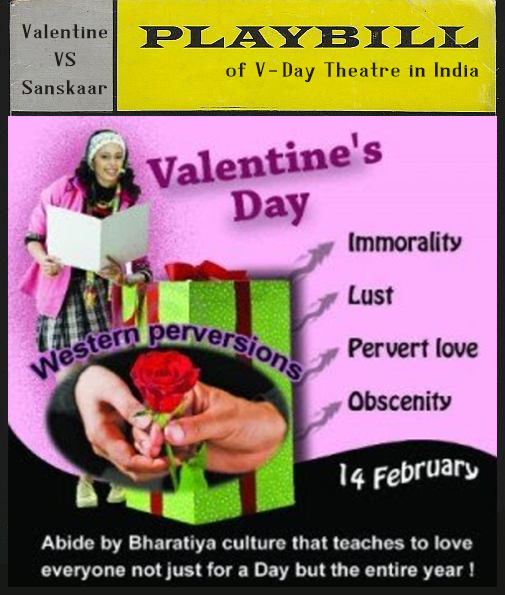 2001 - V for ViolenceAttacks on Valentine’s Day by the Shiv Sena and Bajrang Dal had begun from 1996.On 12 Feb, Bal Thackeray openly condemns celebrations in the Shiv Sena’s Saamna paper: "This shameless festival has been celebrated by our young people for the last 10 years, but it is totally contrary to Indian culture!”On V-Day, activists attack Wimpy’s, a busy fast-food joint welcoming Valentine’s Day couples, in Delhi. They smash plants, crockery and furniture. The restaurant shuts, and couples run for their safety - and dignity. Attacks begin to take place on shops selling cards and gifts (primarily Archies) in Bombay, Bareilly, Pune, Bhopal and Benares, among other cities. In Benaras, activists chop the hair of several celebrating youths and blacken their faces, as a message about the shame of celebrating an event such as V-Day. 2002 - Jab Pyaar Kiiya toh Moral Police se Darna Kya?Archies files a case against Shiv Sena, based on attacks on their store the previous year. The plea is rejected, but a number of papers and young fans speak out in support of Archies, and Valentine’s Day itself.
2001 - V for ViolenceAttacks on Valentine’s Day by the Shiv Sena and Bajrang Dal had begun from 1996.On 12 Feb, Bal Thackeray openly condemns celebrations in the Shiv Sena’s Saamna paper: "This shameless festival has been celebrated by our young people for the last 10 years, but it is totally contrary to Indian culture!”On V-Day, activists attack Wimpy’s, a busy fast-food joint welcoming Valentine’s Day couples, in Delhi. They smash plants, crockery and furniture. The restaurant shuts, and couples run for their safety - and dignity. Attacks begin to take place on shops selling cards and gifts (primarily Archies) in Bombay, Bareilly, Pune, Bhopal and Benares, among other cities. In Benaras, activists chop the hair of several celebrating youths and blacken their faces, as a message about the shame of celebrating an event such as V-Day. 2002 - Jab Pyaar Kiiya toh Moral Police se Darna Kya?Archies files a case against Shiv Sena, based on attacks on their store the previous year. The plea is rejected, but a number of papers and young fans speak out in support of Archies, and Valentine’s Day itself. 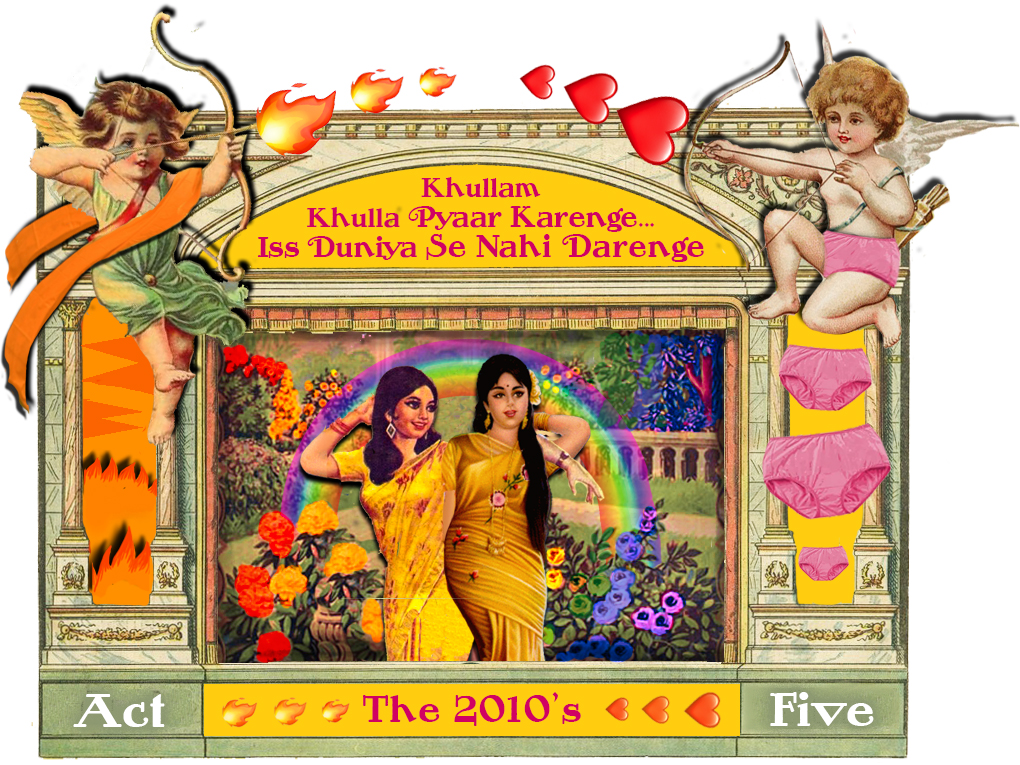 Despite the attacks on V-day, there is no stopping the enthusiasm of young lovers. Can you ask people to taste only half of freedom? V-day cards are sold in every language and V-day has even been converted into a true tyohar, as desi as dandiya, our other love-fest, and is now spread over 7 days Rose day, Propose day, Chocolate Day, Teddy Day, Promise Day, Kiss Day, Hug Day, and finally, Valentine’s Day. V-day becomes a way of mixing many emotions in a changing world, aided by the market, but not limited to the market.
Despite the attacks on V-day, there is no stopping the enthusiasm of young lovers. Can you ask people to taste only half of freedom? V-day cards are sold in every language and V-day has even been converted into a true tyohar, as desi as dandiya, our other love-fest, and is now spread over 7 days Rose day, Propose day, Chocolate Day, Teddy Day, Promise Day, Kiss Day, Hug Day, and finally, Valentine’s Day. V-day becomes a way of mixing many emotions in a changing world, aided by the market, but not limited to the market. 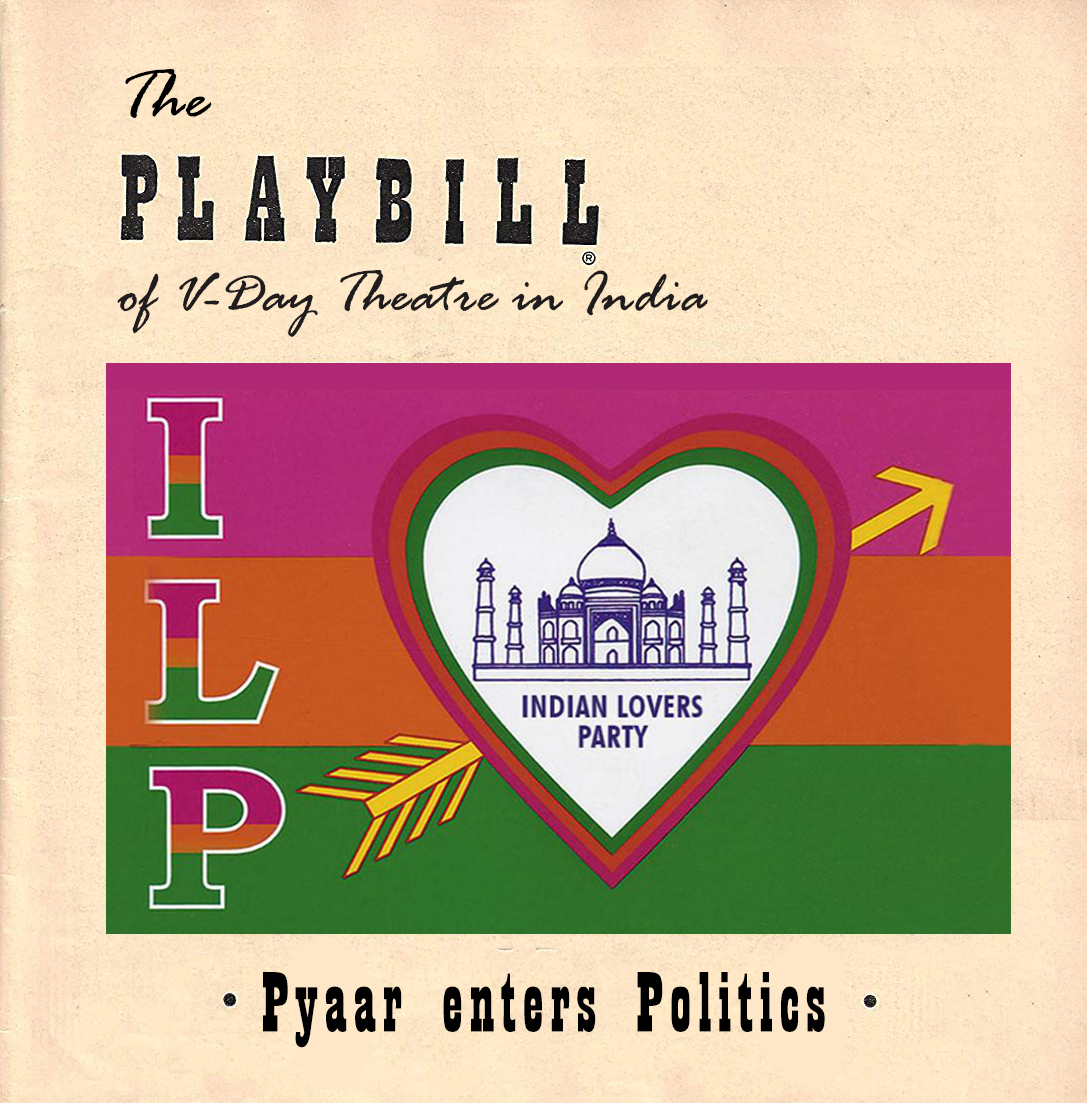 2008 - The Personal is Political aka The Indian Lovers PartyKumar Sri Sri, former makeup artist, starts the Indian Lovers Party (ILP) in response to the Valentine’s violence witnessed on Chennai’s Marina Beach. He wants to spread “the politics of love.” Each year since, the ILP’s “lovers” patrol the beaches distributing chocolates to couples, and campaigning for the partyJanuary 24 2009 - Sri Ram Sene attacks Mangalore pubOn 24th January, the Sri Ram Sena attacks a group of men and women in a pub in Mangalore to send out the message that women in pubs, mingling with men, goes against traditional Indian values. Founder Pramod Muthalik states, "Whoever has done this has done a good job. Girls going to pubs is not acceptable. So, whatever the Sena members did was right.”
2008 - The Personal is Political aka The Indian Lovers PartyKumar Sri Sri, former makeup artist, starts the Indian Lovers Party (ILP) in response to the Valentine’s violence witnessed on Chennai’s Marina Beach. He wants to spread “the politics of love.” Each year since, the ILP’s “lovers” patrol the beaches distributing chocolates to couples, and campaigning for the partyJanuary 24 2009 - Sri Ram Sene attacks Mangalore pubOn 24th January, the Sri Ram Sena attacks a group of men and women in a pub in Mangalore to send out the message that women in pubs, mingling with men, goes against traditional Indian values. Founder Pramod Muthalik states, "Whoever has done this has done a good job. Girls going to pubs is not acceptable. So, whatever the Sena members did was right.” 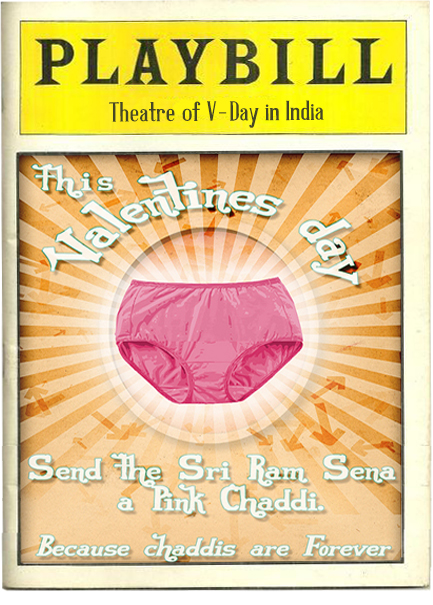 February 14 2009 - Pink Chaddi CampaignThe ‘Consortium of Pub-going, Loose and Forward Women’ is formed on Facebook in response to this. Lage Raho Munna Bhai, se inspire hoke, the group asks people to mail pink underwear to Muthalik, the leader, to show solidarity with the “forward women”. The peaceful and playful protest was named Pink Chaddi Campaign, and Muthalik ko 5000 pairs of pink underwear gift mein mile on Valentine’s Day. “Because chaddis are forever!” 2009 - Bye Bye 377 (Part 1)“Section 377, to the extent it criminalises sexual acts between consenting adults, whether homosexual or heterosexual, is unconstitutional” says the chief justice in the Delhi High Court judgement in 2009. 377 is struck down for the first time.
February 14 2009 - Pink Chaddi CampaignThe ‘Consortium of Pub-going, Loose and Forward Women’ is formed on Facebook in response to this. Lage Raho Munna Bhai, se inspire hoke, the group asks people to mail pink underwear to Muthalik, the leader, to show solidarity with the “forward women”. The peaceful and playful protest was named Pink Chaddi Campaign, and Muthalik ko 5000 pairs of pink underwear gift mein mile on Valentine’s Day. “Because chaddis are forever!” 2009 - Bye Bye 377 (Part 1)“Section 377, to the extent it criminalises sexual acts between consenting adults, whether homosexual or heterosexual, is unconstitutional” says the chief justice in the Delhi High Court judgement in 2009. 377 is struck down for the first time. 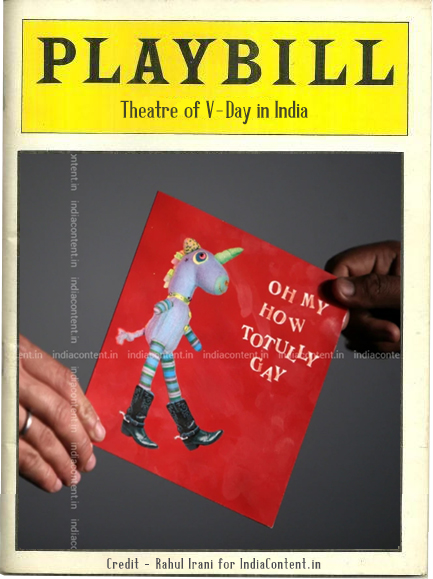 2010 - Gayly GreetingsArchies puts out the first three “Gay greeting cards” ever, in support of the growing LGBTQ community in India.
2010 - Gayly GreetingsArchies puts out the first three “Gay greeting cards” ever, in support of the growing LGBTQ community in India. 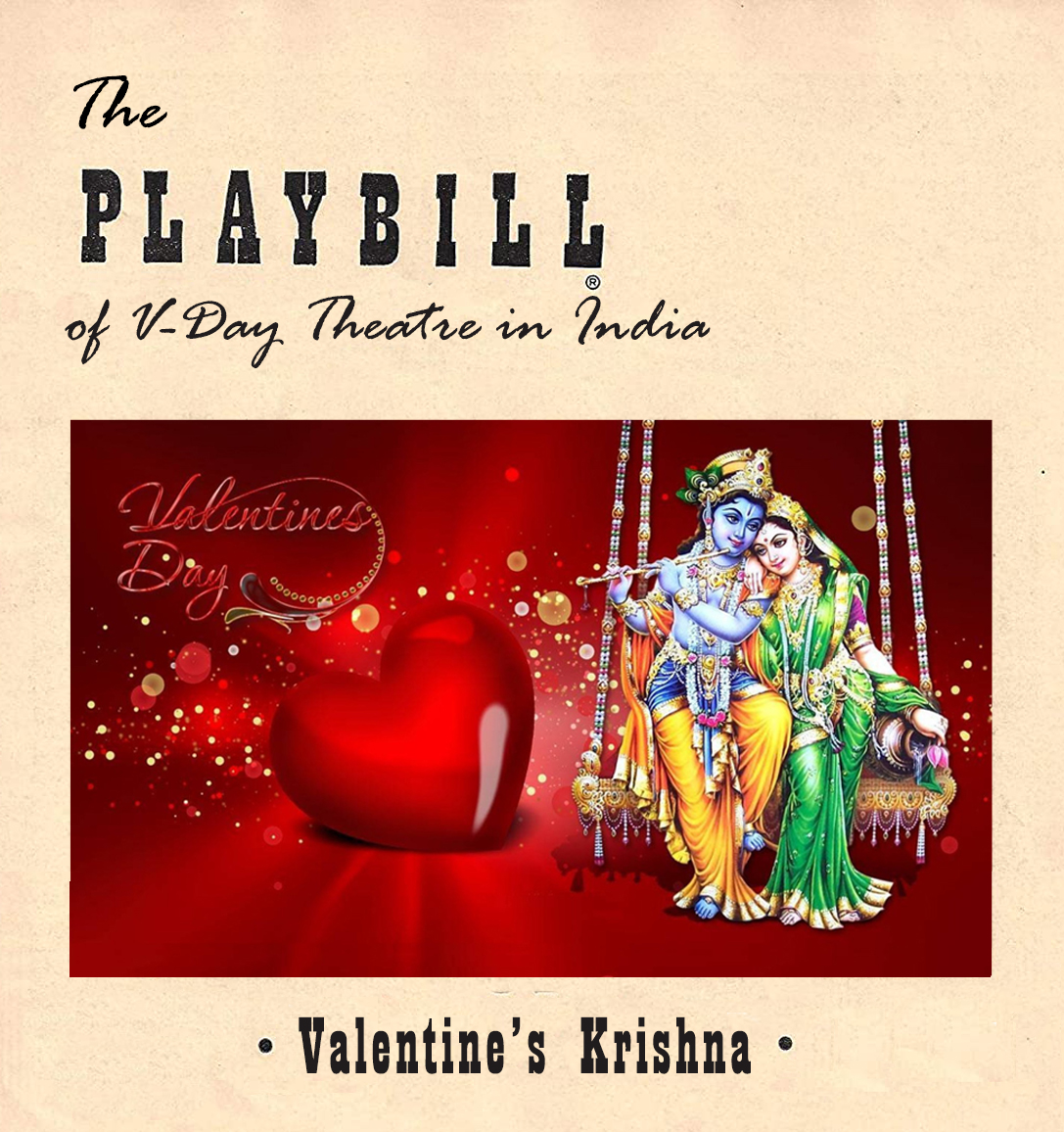 2011 - Valentine’s Krishna TempleJagannath, a devotee of Krishna - his god of Love -- decides to create a temple to Valentine Krishna, in Sholinghur, unifying two traditions of love, physical and spiritual, the Indian and Western, with sweetness. It features a statue of Lord Krishna, with a calf licking his feet affectionately, but which people could also touch, to show their intimacy with god, something discouraged by a number of other temples in South India.“‘The Valentine’s Krishna is a symbol of love. His love is universal and eternal. He loves everybody and everybody loves him. He had 16008 wives, Every day was a valentine’s day for him.” 2011 - Big brand V-dayPlatinum India funds India’s first major Valentine’s Day big-brand campaign - “Because real love can only begin. Never end.” And soon, other big-budget jewellery brands follow suit - Tanishq, Titan, GRT, Quartz India...you can say the market makes V-day grow. But isn’t it the other way round?
2011 - Valentine’s Krishna TempleJagannath, a devotee of Krishna - his god of Love -- decides to create a temple to Valentine Krishna, in Sholinghur, unifying two traditions of love, physical and spiritual, the Indian and Western, with sweetness. It features a statue of Lord Krishna, with a calf licking his feet affectionately, but which people could also touch, to show their intimacy with god, something discouraged by a number of other temples in South India.“‘The Valentine’s Krishna is a symbol of love. His love is universal and eternal. He loves everybody and everybody loves him. He had 16008 wives, Every day was a valentine’s day for him.” 2011 - Big brand V-dayPlatinum India funds India’s first major Valentine’s Day big-brand campaign - “Because real love can only begin. Never end.” And soon, other big-budget jewellery brands follow suit - Tanishq, Titan, GRT, Quartz India...you can say the market makes V-day grow. But isn’t it the other way round? 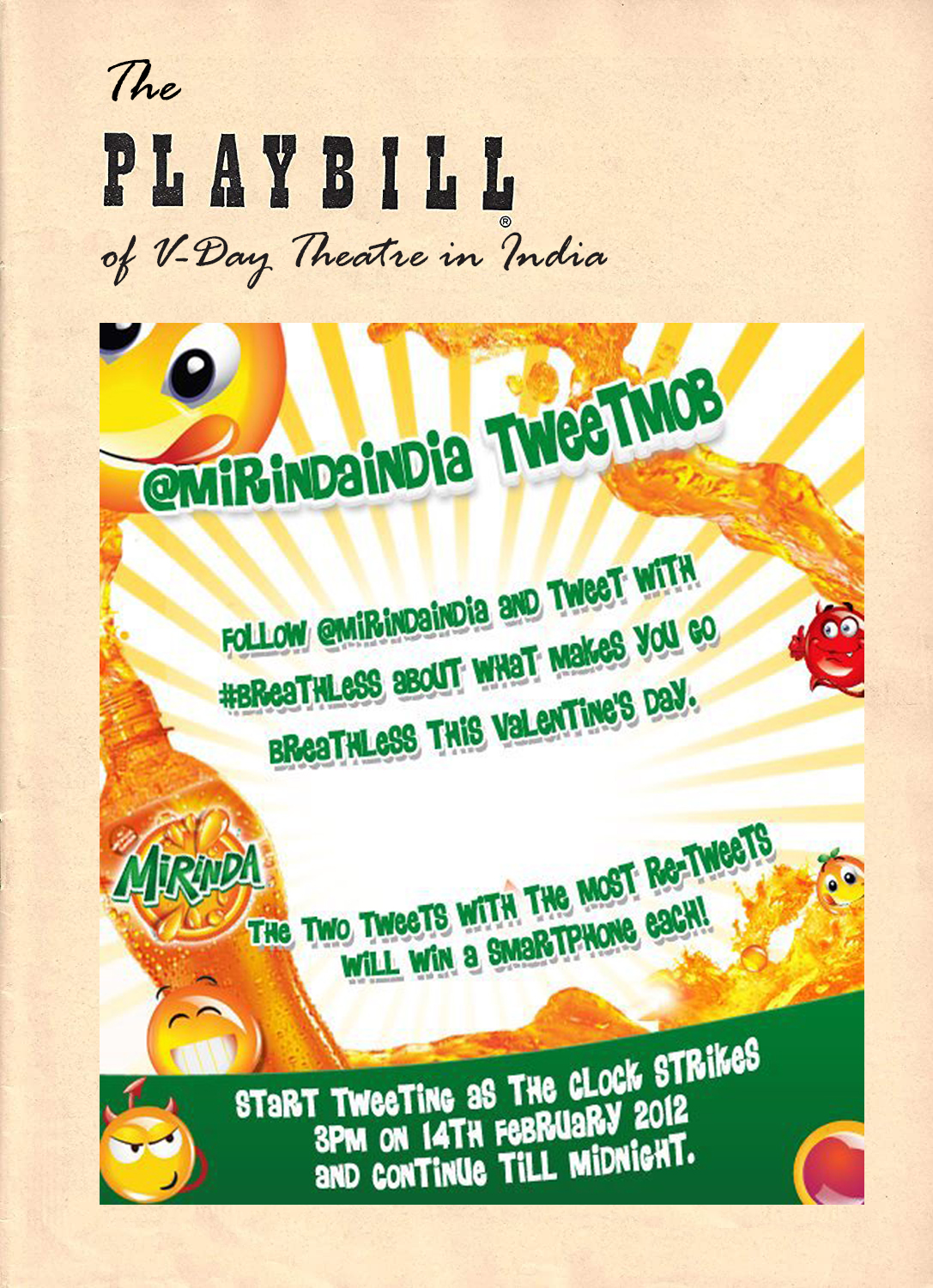 2012 - Mirinda popularises its first Valentine’s ‘Tweet-mob’ through the hashtag #breathless - which trends on V-day twitter, as influencers tweet messages to their lovers donning the breathless hat.
2012 - Mirinda popularises its first Valentine’s ‘Tweet-mob’ through the hashtag #breathless - which trends on V-day twitter, as influencers tweet messages to their lovers donning the breathless hat. 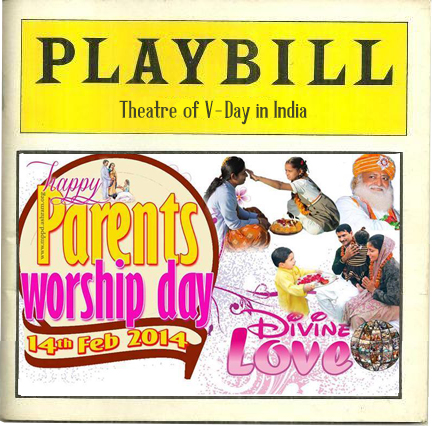 2012 - The Opposition Tries Again - Parents Worship DayIf you can’t beat them, join them. Asaram Bapu proposes to UP’s Akhilesh Yadav the idea of celebrating Matru Pitru Poojan Divas (Parents Worship Day), oh-so-fortunately on 14th February, in hope that bringing parents to school might prevent youngsters from fraternizing with love. The decision is mandated in Chandigarh 2015 onwards. But the belated attempt at appropriation doesn’t get too far.2013 - Yahi Hai Swipe Right Baby! Dating Apps are here!Tinder comes to India. A new voice for the growing online dating culture and virtual ishq. Its user-base grows phenomenally in the next two years, and Tinder has an established market by 2016. 2014 - Take the world and paint it redCouples celebrate Valentine’s Day on the banks of Sabarmati, Ahmedabad, and are showered with rotten tomatoes by Bajrang Dal and Vishwa Hindu Parishad (VHP) activists. On Marina Beach, next to the ILP’s election symbol—a glass of strawberry ice-cream—is the party’s slogan, “Lovers of the world, unite,” alongside pink posters and multiple V-day friendly events. This year, Sri Sri stands for Parliamentary elections (and loses).
2012 - The Opposition Tries Again - Parents Worship DayIf you can’t beat them, join them. Asaram Bapu proposes to UP’s Akhilesh Yadav the idea of celebrating Matru Pitru Poojan Divas (Parents Worship Day), oh-so-fortunately on 14th February, in hope that bringing parents to school might prevent youngsters from fraternizing with love. The decision is mandated in Chandigarh 2015 onwards. But the belated attempt at appropriation doesn’t get too far.2013 - Yahi Hai Swipe Right Baby! Dating Apps are here!Tinder comes to India. A new voice for the growing online dating culture and virtual ishq. Its user-base grows phenomenally in the next two years, and Tinder has an established market by 2016. 2014 - Take the world and paint it redCouples celebrate Valentine’s Day on the banks of Sabarmati, Ahmedabad, and are showered with rotten tomatoes by Bajrang Dal and Vishwa Hindu Parishad (VHP) activists. On Marina Beach, next to the ILP’s election symbol—a glass of strawberry ice-cream—is the party’s slogan, “Lovers of the world, unite,” alongside pink posters and multiple V-day friendly events. This year, Sri Sri stands for Parliamentary elections (and loses). 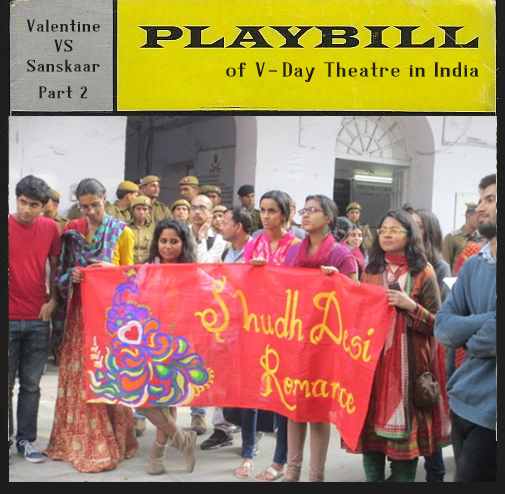 2015 - Opposition leads to student protests“Anyone found celebrating Valentine’s Day in public places will be forcibly married. Non-Hindu couples will be converted to Hinduism before marriage,” declares the Hindu Mahasabha, no longer pretending it’s about Western culture.The students of JNU and DU take an active stand against this, and reach Mandir Marg, New Delhi, near the Hindu Mahasabha office, dressed in wedding dresses, accompanied by pura band-baaja. 220 students are arrested when they began marching towards the Hindu Mahasabha office, as they had not taken permission for the protest. 2016 - Phoolz for LoveAOI makes Phoolz for Love, a film documenting Mumbai’s Ruia College on Rose Day. Unke students walk us through how Ruia’s celebrations are LGBT inclusive, and are trying to expand the definition of love to include the other emotions -- crushes, platonic love, love-jealousy, relationships, and more. Love bhi abhi single nahi raha, and Ruia shows the world how. Check out the film here: At the same time, Shiv Sena decides to name 14th February ‘Black Day’ to mourn freedom fighters Bhagat Singh and two others, who were awarded the death sentence on 14 Feb 1931. Lekin, this info turned out to be untrue, because they were actually hanged on March 23rd. 2017 - Love Can’t be Chee“Love Can’t be Chee”, the first anti-homophobic film by MTV India, takes the stage on Valentine’s Day 2017
2015 - Opposition leads to student protests“Anyone found celebrating Valentine’s Day in public places will be forcibly married. Non-Hindu couples will be converted to Hinduism before marriage,” declares the Hindu Mahasabha, no longer pretending it’s about Western culture.The students of JNU and DU take an active stand against this, and reach Mandir Marg, New Delhi, near the Hindu Mahasabha office, dressed in wedding dresses, accompanied by pura band-baaja. 220 students are arrested when they began marching towards the Hindu Mahasabha office, as they had not taken permission for the protest. 2016 - Phoolz for LoveAOI makes Phoolz for Love, a film documenting Mumbai’s Ruia College on Rose Day. Unke students walk us through how Ruia’s celebrations are LGBT inclusive, and are trying to expand the definition of love to include the other emotions -- crushes, platonic love, love-jealousy, relationships, and more. Love bhi abhi single nahi raha, and Ruia shows the world how. Check out the film here: At the same time, Shiv Sena decides to name 14th February ‘Black Day’ to mourn freedom fighters Bhagat Singh and two others, who were awarded the death sentence on 14 Feb 1931. Lekin, this info turned out to be untrue, because they were actually hanged on March 23rd. 2017 - Love Can’t be Chee“Love Can’t be Chee”, the first anti-homophobic film by MTV India, takes the stage on Valentine’s Day 2017 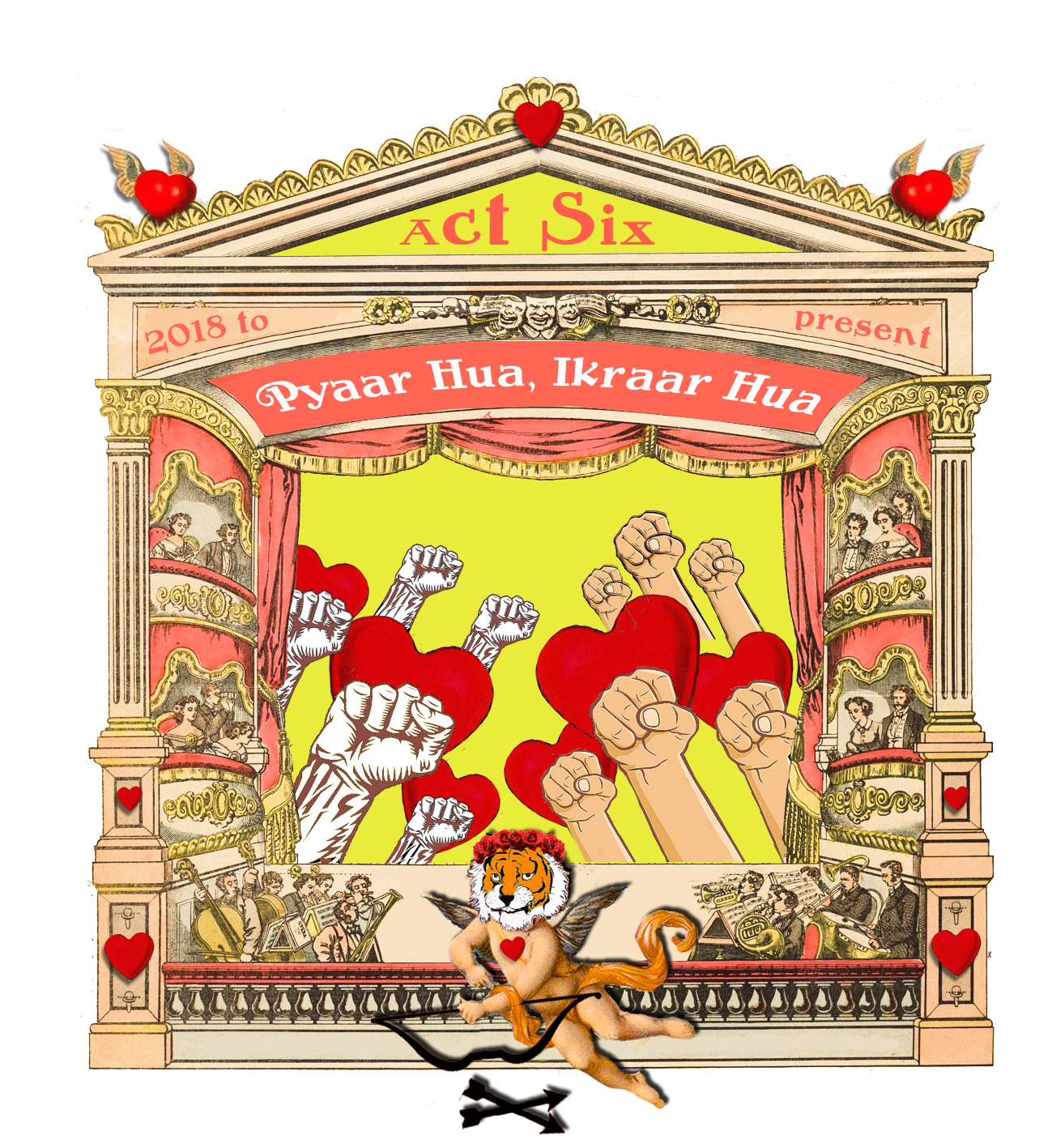 2018 - “We are not opposed to the celebration. There may be some individuals who do such things to get attention, but this is not the party’s line,” says Shiv-Sena, doing a 180 degree palti on its stance on Valentine’s Day, in this iconic statement.
2018 - “We are not opposed to the celebration. There may be some individuals who do such things to get attention, but this is not the party’s line,” says Shiv-Sena, doing a 180 degree palti on its stance on Valentine’s Day, in this iconic statement. 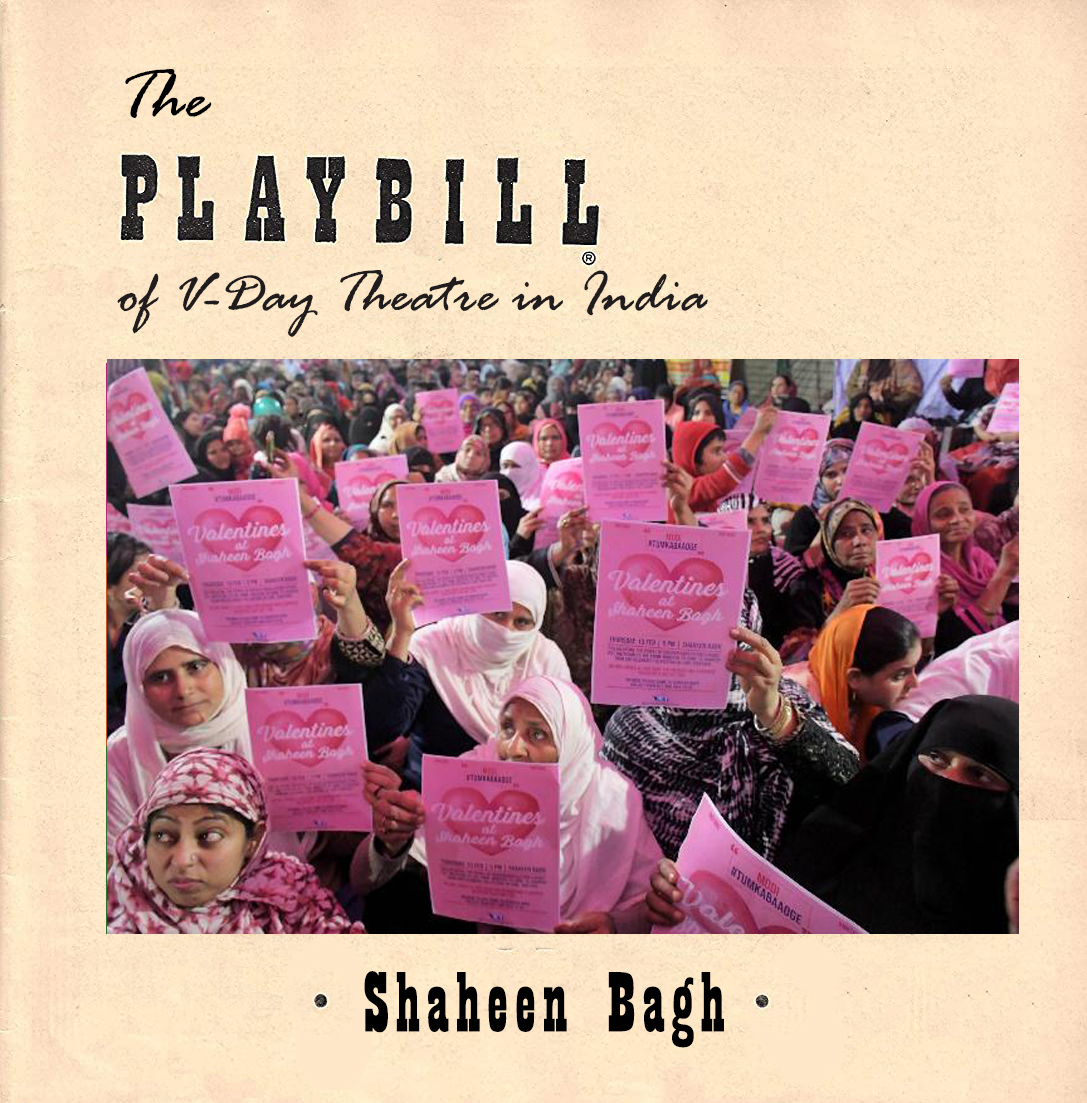 2020 - The women at Shaheen Bagh, a peaceful sit-in protest against the citizenship law, hold up posters of Valentine’s Day at Shaheen Bagh, inviting Prime Minister Modi to "celebrate the festival of love, together." 2020-21 - Love Jihad BogeyStates in North India - UP and Haryana among them - propose a Love Jihad law, policing inter-faith marriages. The Allahabad High Court calls its requirements a violation of fundamental rights of liberty and privacy. 2021 - Full Circle of LoveTo prevent vandalism and protect V-day lovers from attacks by political parties, Mumbai Police receive special orders to increase patrolling near college campuses and shops celebrating Valentine’s Day, as a precautionary measure. You know how the song goes: just remember love will find a way! And a day too! V-day has given Indians a way to express all the different loves that were already a part of life and culture - thoda straight wala, a little queer wala, a tad of friendly wala, dhed saara family wala, and a secret mix of ishq wala LOVE!
2020 - The women at Shaheen Bagh, a peaceful sit-in protest against the citizenship law, hold up posters of Valentine’s Day at Shaheen Bagh, inviting Prime Minister Modi to "celebrate the festival of love, together." 2020-21 - Love Jihad BogeyStates in North India - UP and Haryana among them - propose a Love Jihad law, policing inter-faith marriages. The Allahabad High Court calls its requirements a violation of fundamental rights of liberty and privacy. 2021 - Full Circle of LoveTo prevent vandalism and protect V-day lovers from attacks by political parties, Mumbai Police receive special orders to increase patrolling near college campuses and shops celebrating Valentine’s Day, as a precautionary measure. You know how the song goes: just remember love will find a way! And a day too! V-day has given Indians a way to express all the different loves that were already a part of life and culture - thoda straight wala, a little queer wala, a tad of friendly wala, dhed saara family wala, and a secret mix of ishq wala LOVE!
 Wasn’t it Ghalib who said, yeh na thi hamari kismat ki valentine’s card hota, but hey, I got some sher-o-shayari for you? Matlab, did V-day exist in other forms? Did it start a long time ago, bole toh circa B.I. (Before Internet).It is the 1970s...Polka dots, blouses mein Koli knots, flower power, free love, disco are all sending vibes from across the seas; more young people, especially women, are going to college, affordable cafes are slowly emerging in cities. Young love and youth lifestyle - pop music, cassettes, dancing, fashion - are becoming a thing. 1973 - “I’m Bobby. Mujhse dosti karoge?” A new movie, about solah baras ke (remember, 16 was the age of sexual consent then, nudge nudge) becomes a craze. Rishi Kapoor and Dimple Kapadia starrer Bobby is a super duper hit, and creates a language of young, stylish, passionate, hum tum ek kamre mein band ho love. Teens everywhere begin to emulate the Raj and Bobby date and everything from hair clips to saris acquires the brand name Bobby. What is it but an ancestor of Valentine’s Day, even if it isn’t called by this name right yet?
Wasn’t it Ghalib who said, yeh na thi hamari kismat ki valentine’s card hota, but hey, I got some sher-o-shayari for you? Matlab, did V-day exist in other forms? Did it start a long time ago, bole toh circa B.I. (Before Internet).It is the 1970s...Polka dots, blouses mein Koli knots, flower power, free love, disco are all sending vibes from across the seas; more young people, especially women, are going to college, affordable cafes are slowly emerging in cities. Young love and youth lifestyle - pop music, cassettes, dancing, fashion - are becoming a thing. 1973 - “I’m Bobby. Mujhse dosti karoge?” A new movie, about solah baras ke (remember, 16 was the age of sexual consent then, nudge nudge) becomes a craze. Rishi Kapoor and Dimple Kapadia starrer Bobby is a super duper hit, and creates a language of young, stylish, passionate, hum tum ek kamre mein band ho love. Teens everywhere begin to emulate the Raj and Bobby date and everything from hair clips to saris acquires the brand name Bobby. What is it but an ancestor of Valentine’s Day, even if it isn’t called by this name right yet?  1975 - Anjuna Flea Market is inaugurated on V-day.A bunch of American hippies drive and hitchhike their way to India, ending up in Goa (at least their Goa trip toh worked out!). Before we can say Protima Bedi, the leader of the group - Yertgard “Eight Finger Eddie” Mazmanian (yes, the beer is named after him) - sets up the first flea market in Anjuna on Valentine’s Day 1975, making flea and free love the newest hippie-happy thing in India. And maybe, just maybe, this puts the V-day idea out across the Hindustani universe. 1979 - A shop called Archies.
1975 - Anjuna Flea Market is inaugurated on V-day.A bunch of American hippies drive and hitchhike their way to India, ending up in Goa (at least their Goa trip toh worked out!). Before we can say Protima Bedi, the leader of the group - Yertgard “Eight Finger Eddie” Mazmanian (yes, the beer is named after him) - sets up the first flea market in Anjuna on Valentine’s Day 1975, making flea and free love the newest hippie-happy thing in India. And maybe, just maybe, this puts the V-day idea out across the Hindustani universe. 1979 - A shop called Archies. Anil Moolchandani, son of a saree shop owner, is given two pop-culture posters by a customer who returns from the US. He decides to stick these posters on the door to their store in Kamla Nagar. The posters signal ‘imported’ cool, and catch the eye of several customers and passers-by (perhaps students of the near-by Delhi University), who begin to ask how they can get some. Anil Moolchandani seizes the business opportunity and starts to print and sell posters of movie stills and romance, in his saree shop, and by mail order. One thing leads to another, and ultimately, Archies Greetings and Gifts, is born in 1979, its name evoking Archies comics with their American youth culture of dates, and hanging out over ice-cream sundaes. Nirulas, which started two years earlier, in 1977, becomes the aspirational spot for this Sunday-ke-Sundae type of date.
Anil Moolchandani, son of a saree shop owner, is given two pop-culture posters by a customer who returns from the US. He decides to stick these posters on the door to their store in Kamla Nagar. The posters signal ‘imported’ cool, and catch the eye of several customers and passers-by (perhaps students of the near-by Delhi University), who begin to ask how they can get some. Anil Moolchandani seizes the business opportunity and starts to print and sell posters of movie stills and romance, in his saree shop, and by mail order. One thing leads to another, and ultimately, Archies Greetings and Gifts, is born in 1979, its name evoking Archies comics with their American youth culture of dates, and hanging out over ice-cream sundaes. Nirulas, which started two years earlier, in 1977, becomes the aspirational spot for this Sunday-ke-Sundae type of date.  1980 - The birth of the greeting cardArchies releases its first line of greeting cards (P-series/Poster series) simply by shrinking posters to the size of handheld, giftable cards. Cards expressing love and affection, through quirky Disney characters - Mickey Mouse, Donald Duck, etc., - set the market and emotions aflame. Angrezi mein kehte hain ki “I love you” - and a language for expressing vibes, woh bhi in English, in a more playful way, enters Indian pop culture.Waise, Archies is not the only store of this kind in Delhi, at this time. Giggles, in Connaught Circus, was actually a gift-hub of this kind even before Archies! Late 1970s - early 1980’s - Rose DayPrecise date unknown, but the earliest oral memory we found, was 1967, in Elphinstone college. In the colleges of Bombay (or so the legend goes), the smell of roses wafts through the air…something called Rose Day begins to be celebrated, where students give each other roses in a dil-se expression of affection.Of course while on the surface this denotes a changing, more relaxed attitude to romance, there is always the small print of gender: “The young woman who got the most number of roses was declared Rose Queen. There was no Rose King because it was pretty much unheard of that girls/women would send roses to boys/men, and no LGBTQ of course.” - Sonora Jha, Age 52Some say it began as a Rotary club fundraiser--buy a rose, and the proceeds go to XYZ campaign. Others say it began as a celebration of love and friendship. Either way, Rose Day becomes a tradition over the years, and is later also integrated into Valentine’s ‘week’.
1980 - The birth of the greeting cardArchies releases its first line of greeting cards (P-series/Poster series) simply by shrinking posters to the size of handheld, giftable cards. Cards expressing love and affection, through quirky Disney characters - Mickey Mouse, Donald Duck, etc., - set the market and emotions aflame. Angrezi mein kehte hain ki “I love you” - and a language for expressing vibes, woh bhi in English, in a more playful way, enters Indian pop culture.Waise, Archies is not the only store of this kind in Delhi, at this time. Giggles, in Connaught Circus, was actually a gift-hub of this kind even before Archies! Late 1970s - early 1980’s - Rose DayPrecise date unknown, but the earliest oral memory we found, was 1967, in Elphinstone college. In the colleges of Bombay (or so the legend goes), the smell of roses wafts through the air…something called Rose Day begins to be celebrated, where students give each other roses in a dil-se expression of affection.Of course while on the surface this denotes a changing, more relaxed attitude to romance, there is always the small print of gender: “The young woman who got the most number of roses was declared Rose Queen. There was no Rose King because it was pretty much unheard of that girls/women would send roses to boys/men, and no LGBTQ of course.” - Sonora Jha, Age 52Some say it began as a Rotary club fundraiser--buy a rose, and the proceeds go to XYZ campaign. Others say it began as a celebration of love and friendship. Either way, Rose Day becomes a tradition over the years, and is later also integrated into Valentine’s ‘week’.  Winter nahi, lekin something is coming. Liberalisation. ‘Offers’ no longer mean shaadi ya job ke offers’ as it brings with it advertising, innovative marketing , Music TV, more brands, and more avenues for V-Day to make its way into the Indian festival market - and help make the market into a festival of sorts. It rides high and far on Hinglish- a language constantly remixing the desi and videshi into something newer and more widely relatable. 1985 - From Valentine’s Cards to Valentine’s Ads.Archies, building on the success of their love cards, runs their first Valentine’s Day campaign to market their new product - Valentine’s cards. This is the first year that India sees an advertisement of Valentine’s Day in the major newspapers. 1991 - To Market To Market, to say Hello LiberalisationEconomic liberalisation comes to India bringing a surge of globalised content. Private TV channels, international satellite broadcast, youth magazines, decentralised radio with international music coverage, present a hearty welcome to contemporary culture.
Winter nahi, lekin something is coming. Liberalisation. ‘Offers’ no longer mean shaadi ya job ke offers’ as it brings with it advertising, innovative marketing , Music TV, more brands, and more avenues for V-Day to make its way into the Indian festival market - and help make the market into a festival of sorts. It rides high and far on Hinglish- a language constantly remixing the desi and videshi into something newer and more widely relatable. 1985 - From Valentine’s Cards to Valentine’s Ads.Archies, building on the success of their love cards, runs their first Valentine’s Day campaign to market their new product - Valentine’s cards. This is the first year that India sees an advertisement of Valentine’s Day in the major newspapers. 1991 - To Market To Market, to say Hello LiberalisationEconomic liberalisation comes to India bringing a surge of globalised content. Private TV channels, international satellite broadcast, youth magazines, decentralised radio with international music coverage, present a hearty welcome to contemporary culture.  February 1991 -Love on TVTo expand the abhi fast-spreading Valentine’s market, Archies puts out its first advertisement on television in early February (Star, being the only available channel at this point) for Valentine’s Day. Suddenly Chitrahaar and Sunday movies aren't the only whiff of romance on the TV screen. 1992 - MTV on V-DayMTV arrives in India via Star TV. They host their pehla Valentine’s Day event - a love letter contest. After all, kabutar se bheje hue pyaar ke chitthi are definitely a shuddh desi specialty! 1994 - Love is floweringFerns N Petals is started, adding to the growing florist market in the 90s. They set up their first website in 2002, allowing for pan-India deliveries round the clock. Aakhir, we are all phoolz for love.
February 1991 -Love on TVTo expand the abhi fast-spreading Valentine’s market, Archies puts out its first advertisement on television in early February (Star, being the only available channel at this point) for Valentine’s Day. Suddenly Chitrahaar and Sunday movies aren't the only whiff of romance on the TV screen. 1992 - MTV on V-DayMTV arrives in India via Star TV. They host their pehla Valentine’s Day event - a love letter contest. After all, kabutar se bheje hue pyaar ke chitthi are definitely a shuddh desi specialty! 1994 - Love is floweringFerns N Petals is started, adding to the growing florist market in the 90s. They set up their first website in 2002, allowing for pan-India deliveries round the clock. Aakhir, we are all phoolz for love. 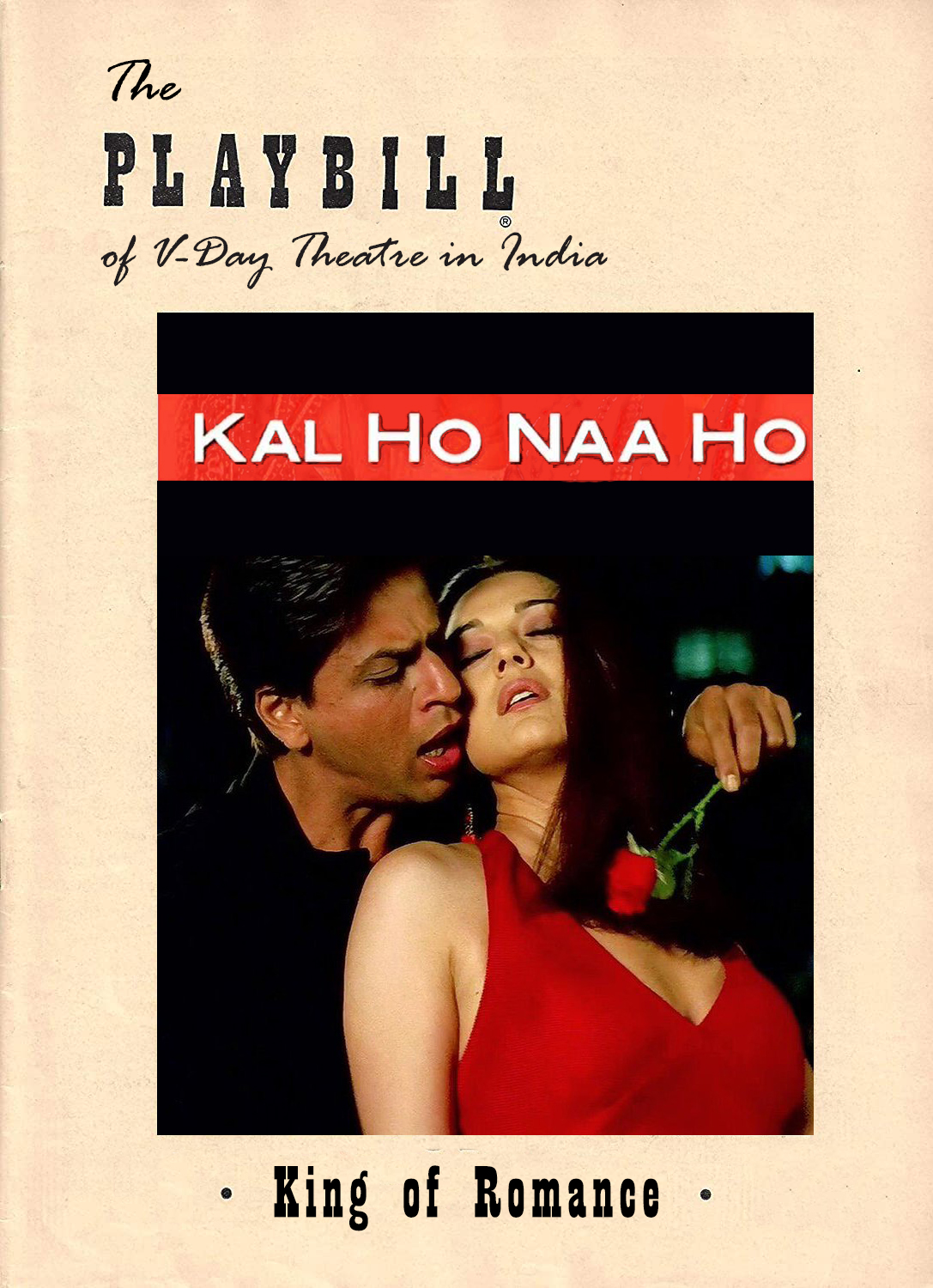
1997 - From the real to the reel
The festival of love, spreads to Bollywood, Kollywood and Tollywood! Shah Rukh Khan is not known as the King of Romance ainvayi! Madhuri Dixit starrer, Dil Toh Pagal Hai, Kuch Kuch Hota Hai (1998) (through the Neelam Show), Kal Ho Na Ho, and others, soon establish V-day as a SRK movie trend. SRK ne kiye, toh humne bhi karna hai! 1999 - Kadhalar Dhinam (The Day of Love, or, loosely translated from Tamil to mean Valentine’s Day) is one of the first Tamil movies to address Valentine’s Day in a major way. The film ends (spoiler alert!) with Raja and Roja’s wedding, after much drama, on the, by then notorious, Valentine’s Day. 21st century aayi. The internet does not collapse as portended, but accelerates everything already in motion over a decade of the new economy and culture. 1997-2000 - The Market BoomValentine’s Day celebrations explode in most cities, especially Bombay, in the big Y2K. Multiple restaurants (Copper Chimney, CCD, Barista, Mirch Masala, Monginis... being some of the leading brands) announce Valentine’s Day crowd-gatherers.
21st century aayi. The internet does not collapse as portended, but accelerates everything already in motion over a decade of the new economy and culture. 1997-2000 - The Market BoomValentine’s Day celebrations explode in most cities, especially Bombay, in the big Y2K. Multiple restaurants (Copper Chimney, CCD, Barista, Mirch Masala, Monginis... being some of the leading brands) announce Valentine’s Day crowd-gatherers.  2000 - Bombay Times, the home of all things marketing and lifestyle, runs a headline on 14th Feb - “Remember, Cupid rhymes with Stupid,” but that definitely does not stop the cupidity.A giant V-day card is installed on Chowpatti beach, free for couples to sign, write letters on, and take pictures with. “A TV channel is taking a giant float of the epic ship, the Titanic, to different city colleges. Young sweethearts can pose on it like film-stars Kate Winslet and Leonardo DiCaprio, who played Rose and Jack in the Oscar-winning film,” writes BBC. Channel V starts Channel [V] Crush - a show that invites lovers to send in their stories, and either celebrates their relationship or plays Cupid to get them together. The show stays on air from 2000-2005.
2000 - Bombay Times, the home of all things marketing and lifestyle, runs a headline on 14th Feb - “Remember, Cupid rhymes with Stupid,” but that definitely does not stop the cupidity.A giant V-day card is installed on Chowpatti beach, free for couples to sign, write letters on, and take pictures with. “A TV channel is taking a giant float of the epic ship, the Titanic, to different city colleges. Young sweethearts can pose on it like film-stars Kate Winslet and Leonardo DiCaprio, who played Rose and Jack in the Oscar-winning film,” writes BBC. Channel V starts Channel [V] Crush - a show that invites lovers to send in their stories, and either celebrates their relationship or plays Cupid to get them together. The show stays on air from 2000-2005.  Young desis and not-so-young ones, have made Valentine’s day their apna, lekin not everyone is all “I’m lovin’ it”. Many political parties are crying Maa da laadla and ladli bigad gaye, a.k.a., “western influence is ruining Indian culture”. As always, love creates anxieties about caste, religion, control and change and Valentine’s Day becomes a way to express this idea of ‘tradition’ and try to re-establish social control..
Young desis and not-so-young ones, have made Valentine’s day their apna, lekin not everyone is all “I’m lovin’ it”. Many political parties are crying Maa da laadla and ladli bigad gaye, a.k.a., “western influence is ruining Indian culture”. As always, love creates anxieties about caste, religion, control and change and Valentine’s Day becomes a way to express this idea of ‘tradition’ and try to re-establish social control..  2001 - V for ViolenceAttacks on Valentine’s Day by the Shiv Sena and Bajrang Dal had begun from 1996.On 12 Feb, Bal Thackeray openly condemns celebrations in the Shiv Sena’s Saamna paper: "This shameless festival has been celebrated by our young people for the last 10 years, but it is totally contrary to Indian culture!”On V-Day, activists attack Wimpy’s, a busy fast-food joint welcoming Valentine’s Day couples, in Delhi. They smash plants, crockery and furniture. The restaurant shuts, and couples run for their safety - and dignity. Attacks begin to take place on shops selling cards and gifts (primarily Archies) in Bombay, Bareilly, Pune, Bhopal and Benares, among other cities. In Benaras, activists chop the hair of several celebrating youths and blacken their faces, as a message about the shame of celebrating an event such as V-Day. 2002 - Jab Pyaar Kiiya toh Moral Police se Darna Kya?Archies files a case against Shiv Sena, based on attacks on their store the previous year. The plea is rejected, but a number of papers and young fans speak out in support of Archies, and Valentine’s Day itself.
2001 - V for ViolenceAttacks on Valentine’s Day by the Shiv Sena and Bajrang Dal had begun from 1996.On 12 Feb, Bal Thackeray openly condemns celebrations in the Shiv Sena’s Saamna paper: "This shameless festival has been celebrated by our young people for the last 10 years, but it is totally contrary to Indian culture!”On V-Day, activists attack Wimpy’s, a busy fast-food joint welcoming Valentine’s Day couples, in Delhi. They smash plants, crockery and furniture. The restaurant shuts, and couples run for their safety - and dignity. Attacks begin to take place on shops selling cards and gifts (primarily Archies) in Bombay, Bareilly, Pune, Bhopal and Benares, among other cities. In Benaras, activists chop the hair of several celebrating youths and blacken their faces, as a message about the shame of celebrating an event such as V-Day. 2002 - Jab Pyaar Kiiya toh Moral Police se Darna Kya?Archies files a case against Shiv Sena, based on attacks on their store the previous year. The plea is rejected, but a number of papers and young fans speak out in support of Archies, and Valentine’s Day itself.  Despite the attacks on V-day, there is no stopping the enthusiasm of young lovers. Can you ask people to taste only half of freedom? V-day cards are sold in every language and V-day has even been converted into a true tyohar, as desi as dandiya, our other love-fest, and is now spread over 7 days Rose day, Propose day, Chocolate Day, Teddy Day, Promise Day, Kiss Day, Hug Day, and finally, Valentine’s Day. V-day becomes a way of mixing many emotions in a changing world, aided by the market, but not limited to the market.
Despite the attacks on V-day, there is no stopping the enthusiasm of young lovers. Can you ask people to taste only half of freedom? V-day cards are sold in every language and V-day has even been converted into a true tyohar, as desi as dandiya, our other love-fest, and is now spread over 7 days Rose day, Propose day, Chocolate Day, Teddy Day, Promise Day, Kiss Day, Hug Day, and finally, Valentine’s Day. V-day becomes a way of mixing many emotions in a changing world, aided by the market, but not limited to the market.  2008 - The Personal is Political aka The Indian Lovers PartyKumar Sri Sri, former makeup artist, starts the Indian Lovers Party (ILP) in response to the Valentine’s violence witnessed on Chennai’s Marina Beach. He wants to spread “the politics of love.” Each year since, the ILP’s “lovers” patrol the beaches distributing chocolates to couples, and campaigning for the partyJanuary 24 2009 - Sri Ram Sene attacks Mangalore pubOn 24th January, the Sri Ram Sena attacks a group of men and women in a pub in Mangalore to send out the message that women in pubs, mingling with men, goes against traditional Indian values. Founder Pramod Muthalik states, "Whoever has done this has done a good job. Girls going to pubs is not acceptable. So, whatever the Sena members did was right.”
2008 - The Personal is Political aka The Indian Lovers PartyKumar Sri Sri, former makeup artist, starts the Indian Lovers Party (ILP) in response to the Valentine’s violence witnessed on Chennai’s Marina Beach. He wants to spread “the politics of love.” Each year since, the ILP’s “lovers” patrol the beaches distributing chocolates to couples, and campaigning for the partyJanuary 24 2009 - Sri Ram Sene attacks Mangalore pubOn 24th January, the Sri Ram Sena attacks a group of men and women in a pub in Mangalore to send out the message that women in pubs, mingling with men, goes against traditional Indian values. Founder Pramod Muthalik states, "Whoever has done this has done a good job. Girls going to pubs is not acceptable. So, whatever the Sena members did was right.”  February 14 2009 - Pink Chaddi CampaignThe ‘Consortium of Pub-going, Loose and Forward Women’ is formed on Facebook in response to this. Lage Raho Munna Bhai, se inspire hoke, the group asks people to mail pink underwear to Muthalik, the leader, to show solidarity with the “forward women”. The peaceful and playful protest was named Pink Chaddi Campaign, and Muthalik ko 5000 pairs of pink underwear gift mein mile on Valentine’s Day. “Because chaddis are forever!” 2009 - Bye Bye 377 (Part 1)“Section 377, to the extent it criminalises sexual acts between consenting adults, whether homosexual or heterosexual, is unconstitutional” says the chief justice in the Delhi High Court judgement in 2009. 377 is struck down for the first time.
February 14 2009 - Pink Chaddi CampaignThe ‘Consortium of Pub-going, Loose and Forward Women’ is formed on Facebook in response to this. Lage Raho Munna Bhai, se inspire hoke, the group asks people to mail pink underwear to Muthalik, the leader, to show solidarity with the “forward women”. The peaceful and playful protest was named Pink Chaddi Campaign, and Muthalik ko 5000 pairs of pink underwear gift mein mile on Valentine’s Day. “Because chaddis are forever!” 2009 - Bye Bye 377 (Part 1)“Section 377, to the extent it criminalises sexual acts between consenting adults, whether homosexual or heterosexual, is unconstitutional” says the chief justice in the Delhi High Court judgement in 2009. 377 is struck down for the first time.  2010 - Gayly GreetingsArchies puts out the first three “Gay greeting cards” ever, in support of the growing LGBTQ community in India.
2010 - Gayly GreetingsArchies puts out the first three “Gay greeting cards” ever, in support of the growing LGBTQ community in India.  2011 - Valentine’s Krishna TempleJagannath, a devotee of Krishna - his god of Love -- decides to create a temple to Valentine Krishna, in Sholinghur, unifying two traditions of love, physical and spiritual, the Indian and Western, with sweetness. It features a statue of Lord Krishna, with a calf licking his feet affectionately, but which people could also touch, to show their intimacy with god, something discouraged by a number of other temples in South India.“‘The Valentine’s Krishna is a symbol of love. His love is universal and eternal. He loves everybody and everybody loves him. He had 16008 wives, Every day was a valentine’s day for him.” 2011 - Big brand V-dayPlatinum India funds India’s first major Valentine’s Day big-brand campaign - “Because real love can only begin. Never end.” And soon, other big-budget jewellery brands follow suit - Tanishq, Titan, GRT, Quartz India...you can say the market makes V-day grow. But isn’t it the other way round?
2011 - Valentine’s Krishna TempleJagannath, a devotee of Krishna - his god of Love -- decides to create a temple to Valentine Krishna, in Sholinghur, unifying two traditions of love, physical and spiritual, the Indian and Western, with sweetness. It features a statue of Lord Krishna, with a calf licking his feet affectionately, but which people could also touch, to show their intimacy with god, something discouraged by a number of other temples in South India.“‘The Valentine’s Krishna is a symbol of love. His love is universal and eternal. He loves everybody and everybody loves him. He had 16008 wives, Every day was a valentine’s day for him.” 2011 - Big brand V-dayPlatinum India funds India’s first major Valentine’s Day big-brand campaign - “Because real love can only begin. Never end.” And soon, other big-budget jewellery brands follow suit - Tanishq, Titan, GRT, Quartz India...you can say the market makes V-day grow. But isn’t it the other way round?  2012 - Mirinda popularises its first Valentine’s ‘Tweet-mob’ through the hashtag #breathless - which trends on V-day twitter, as influencers tweet messages to their lovers donning the breathless hat.
2012 - Mirinda popularises its first Valentine’s ‘Tweet-mob’ through the hashtag #breathless - which trends on V-day twitter, as influencers tweet messages to their lovers donning the breathless hat.  2012 - The Opposition Tries Again - Parents Worship DayIf you can’t beat them, join them. Asaram Bapu proposes to UP’s Akhilesh Yadav the idea of celebrating Matru Pitru Poojan Divas (Parents Worship Day), oh-so-fortunately on 14th February, in hope that bringing parents to school might prevent youngsters from fraternizing with love. The decision is mandated in Chandigarh 2015 onwards. But the belated attempt at appropriation doesn’t get too far.2013 - Yahi Hai Swipe Right Baby! Dating Apps are here!Tinder comes to India. A new voice for the growing online dating culture and virtual ishq. Its user-base grows phenomenally in the next two years, and Tinder has an established market by 2016. 2014 - Take the world and paint it redCouples celebrate Valentine’s Day on the banks of Sabarmati, Ahmedabad, and are showered with rotten tomatoes by Bajrang Dal and Vishwa Hindu Parishad (VHP) activists. On Marina Beach, next to the ILP’s election symbol—a glass of strawberry ice-cream—is the party’s slogan, “Lovers of the world, unite,” alongside pink posters and multiple V-day friendly events. This year, Sri Sri stands for Parliamentary elections (and loses).
2012 - The Opposition Tries Again - Parents Worship DayIf you can’t beat them, join them. Asaram Bapu proposes to UP’s Akhilesh Yadav the idea of celebrating Matru Pitru Poojan Divas (Parents Worship Day), oh-so-fortunately on 14th February, in hope that bringing parents to school might prevent youngsters from fraternizing with love. The decision is mandated in Chandigarh 2015 onwards. But the belated attempt at appropriation doesn’t get too far.2013 - Yahi Hai Swipe Right Baby! Dating Apps are here!Tinder comes to India. A new voice for the growing online dating culture and virtual ishq. Its user-base grows phenomenally in the next two years, and Tinder has an established market by 2016. 2014 - Take the world and paint it redCouples celebrate Valentine’s Day on the banks of Sabarmati, Ahmedabad, and are showered with rotten tomatoes by Bajrang Dal and Vishwa Hindu Parishad (VHP) activists. On Marina Beach, next to the ILP’s election symbol—a glass of strawberry ice-cream—is the party’s slogan, “Lovers of the world, unite,” alongside pink posters and multiple V-day friendly events. This year, Sri Sri stands for Parliamentary elections (and loses).  2015 - Opposition leads to student protests“Anyone found celebrating Valentine’s Day in public places will be forcibly married. Non-Hindu couples will be converted to Hinduism before marriage,” declares the Hindu Mahasabha, no longer pretending it’s about Western culture.The students of JNU and DU take an active stand against this, and reach Mandir Marg, New Delhi, near the Hindu Mahasabha office, dressed in wedding dresses, accompanied by pura band-baaja. 220 students are arrested when they began marching towards the Hindu Mahasabha office, as they had not taken permission for the protest. 2016 - Phoolz for LoveAOI makes Phoolz for Love, a film documenting Mumbai’s Ruia College on Rose Day. Unke students walk us through how Ruia’s celebrations are LGBT inclusive, and are trying to expand the definition of love to include the other emotions -- crushes, platonic love, love-jealousy, relationships, and more. Love bhi abhi single nahi raha, and Ruia shows the world how. Check out the film here: At the same time, Shiv Sena decides to name 14th February ‘Black Day’ to mourn freedom fighters Bhagat Singh and two others, who were awarded the death sentence on 14 Feb 1931. Lekin, this info turned out to be untrue, because they were actually hanged on March 23rd. 2017 - Love Can’t be Chee“Love Can’t be Chee”, the first anti-homophobic film by MTV India, takes the stage on Valentine’s Day 2017
2015 - Opposition leads to student protests“Anyone found celebrating Valentine’s Day in public places will be forcibly married. Non-Hindu couples will be converted to Hinduism before marriage,” declares the Hindu Mahasabha, no longer pretending it’s about Western culture.The students of JNU and DU take an active stand against this, and reach Mandir Marg, New Delhi, near the Hindu Mahasabha office, dressed in wedding dresses, accompanied by pura band-baaja. 220 students are arrested when they began marching towards the Hindu Mahasabha office, as they had not taken permission for the protest. 2016 - Phoolz for LoveAOI makes Phoolz for Love, a film documenting Mumbai’s Ruia College on Rose Day. Unke students walk us through how Ruia’s celebrations are LGBT inclusive, and are trying to expand the definition of love to include the other emotions -- crushes, platonic love, love-jealousy, relationships, and more. Love bhi abhi single nahi raha, and Ruia shows the world how. Check out the film here: At the same time, Shiv Sena decides to name 14th February ‘Black Day’ to mourn freedom fighters Bhagat Singh and two others, who were awarded the death sentence on 14 Feb 1931. Lekin, this info turned out to be untrue, because they were actually hanged on March 23rd. 2017 - Love Can’t be Chee“Love Can’t be Chee”, the first anti-homophobic film by MTV India, takes the stage on Valentine’s Day 2017  2018 - “We are not opposed to the celebration. There may be some individuals who do such things to get attention, but this is not the party’s line,” says Shiv-Sena, doing a 180 degree palti on its stance on Valentine’s Day, in this iconic statement.
2018 - “We are not opposed to the celebration. There may be some individuals who do such things to get attention, but this is not the party’s line,” says Shiv-Sena, doing a 180 degree palti on its stance on Valentine’s Day, in this iconic statement.  2020 - The women at Shaheen Bagh, a peaceful sit-in protest against the citizenship law, hold up posters of Valentine’s Day at Shaheen Bagh, inviting Prime Minister Modi to "celebrate the festival of love, together." 2020-21 - Love Jihad BogeyStates in North India - UP and Haryana among them - propose a Love Jihad law, policing inter-faith marriages. The Allahabad High Court calls its requirements a violation of fundamental rights of liberty and privacy. 2021 - Full Circle of LoveTo prevent vandalism and protect V-day lovers from attacks by political parties, Mumbai Police receive special orders to increase patrolling near college campuses and shops celebrating Valentine’s Day, as a precautionary measure. You know how the song goes: just remember love will find a way! And a day too! V-day has given Indians a way to express all the different loves that were already a part of life and culture - thoda straight wala, a little queer wala, a tad of friendly wala, dhed saara family wala, and a secret mix of ishq wala LOVE!
2020 - The women at Shaheen Bagh, a peaceful sit-in protest against the citizenship law, hold up posters of Valentine’s Day at Shaheen Bagh, inviting Prime Minister Modi to "celebrate the festival of love, together." 2020-21 - Love Jihad BogeyStates in North India - UP and Haryana among them - propose a Love Jihad law, policing inter-faith marriages. The Allahabad High Court calls its requirements a violation of fundamental rights of liberty and privacy. 2021 - Full Circle of LoveTo prevent vandalism and protect V-day lovers from attacks by political parties, Mumbai Police receive special orders to increase patrolling near college campuses and shops celebrating Valentine’s Day, as a precautionary measure. You know how the song goes: just remember love will find a way! And a day too! V-day has given Indians a way to express all the different loves that were already a part of life and culture - thoda straight wala, a little queer wala, a tad of friendly wala, dhed saara family wala, and a secret mix of ishq wala LOVE! 

